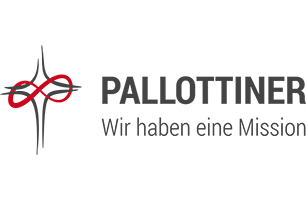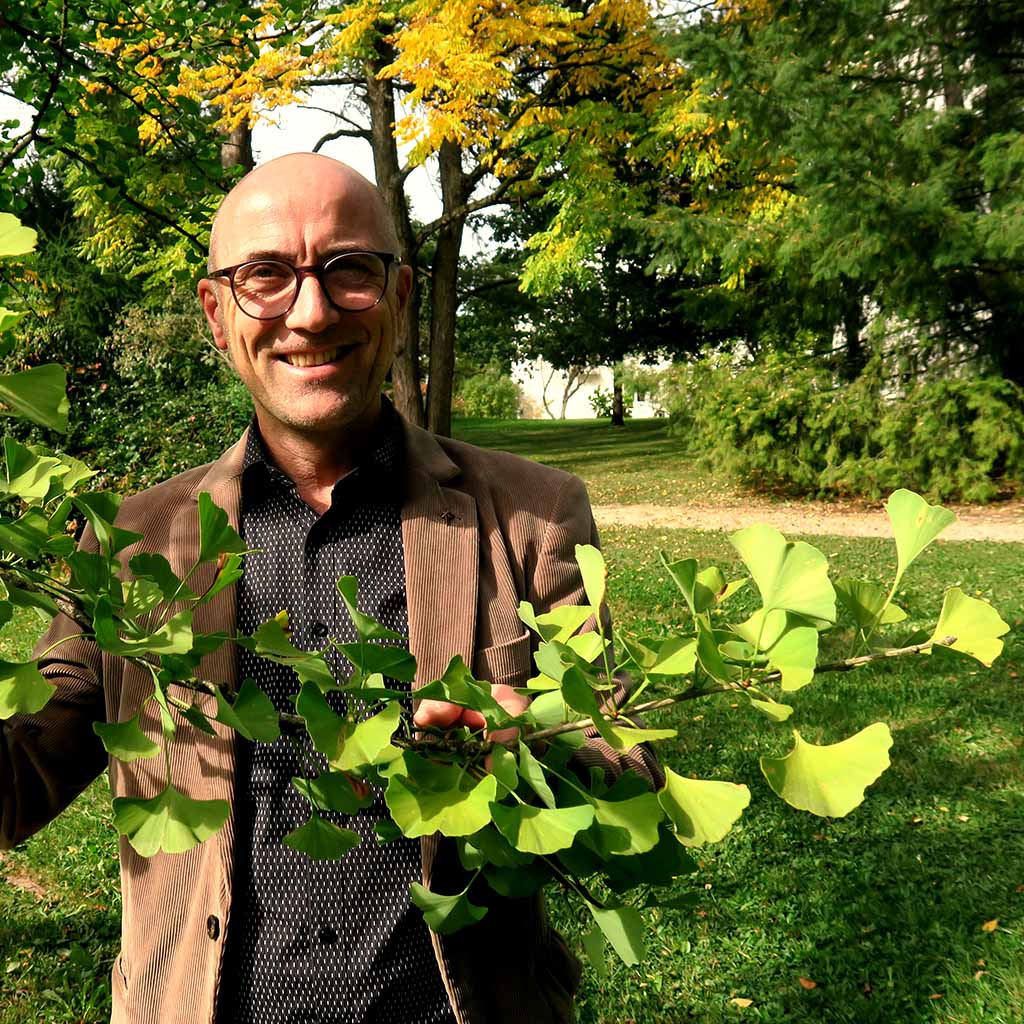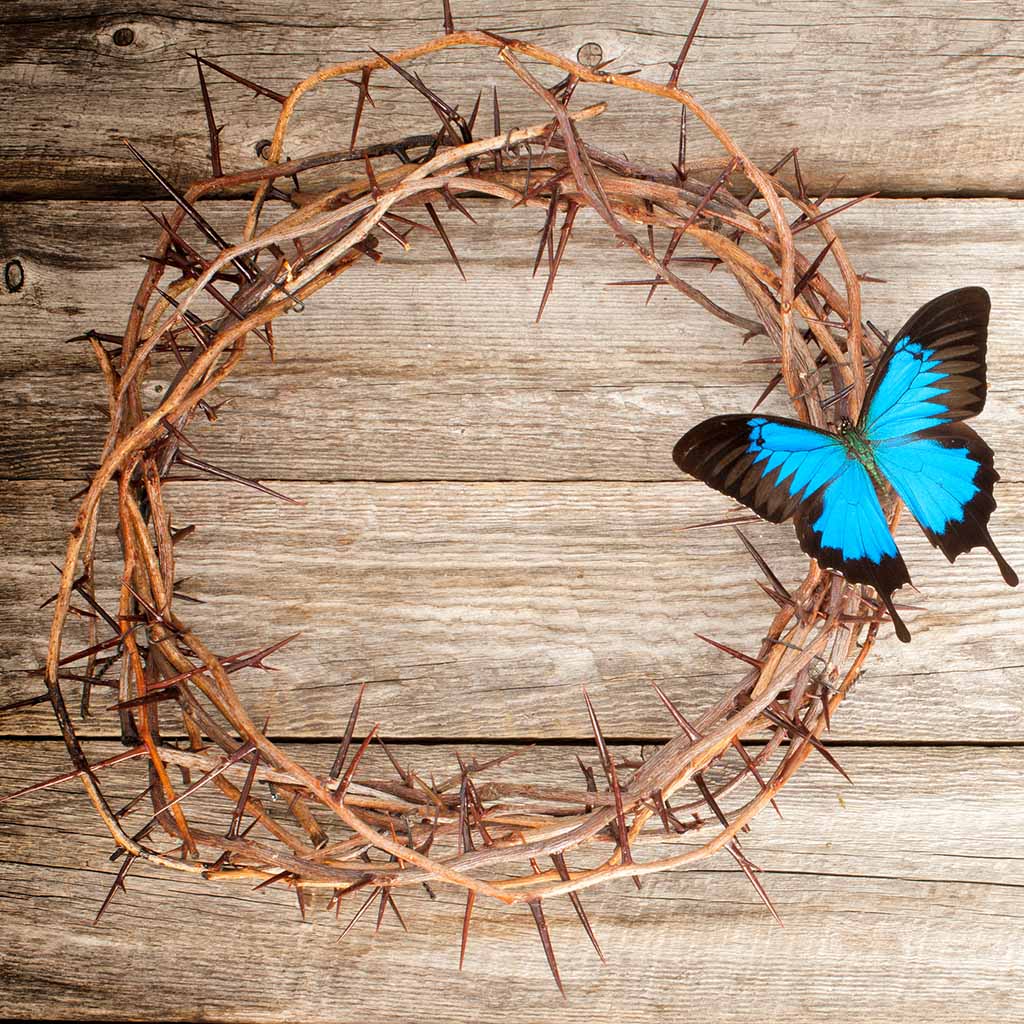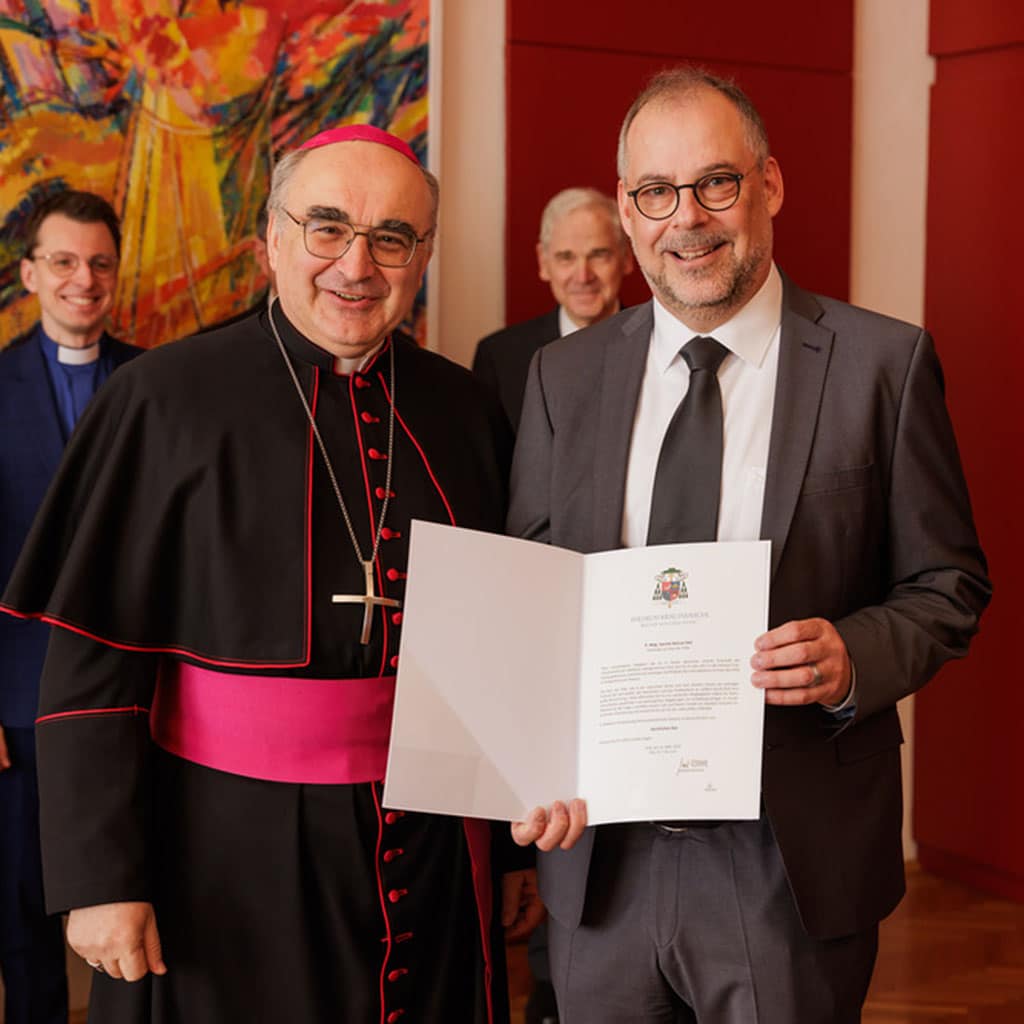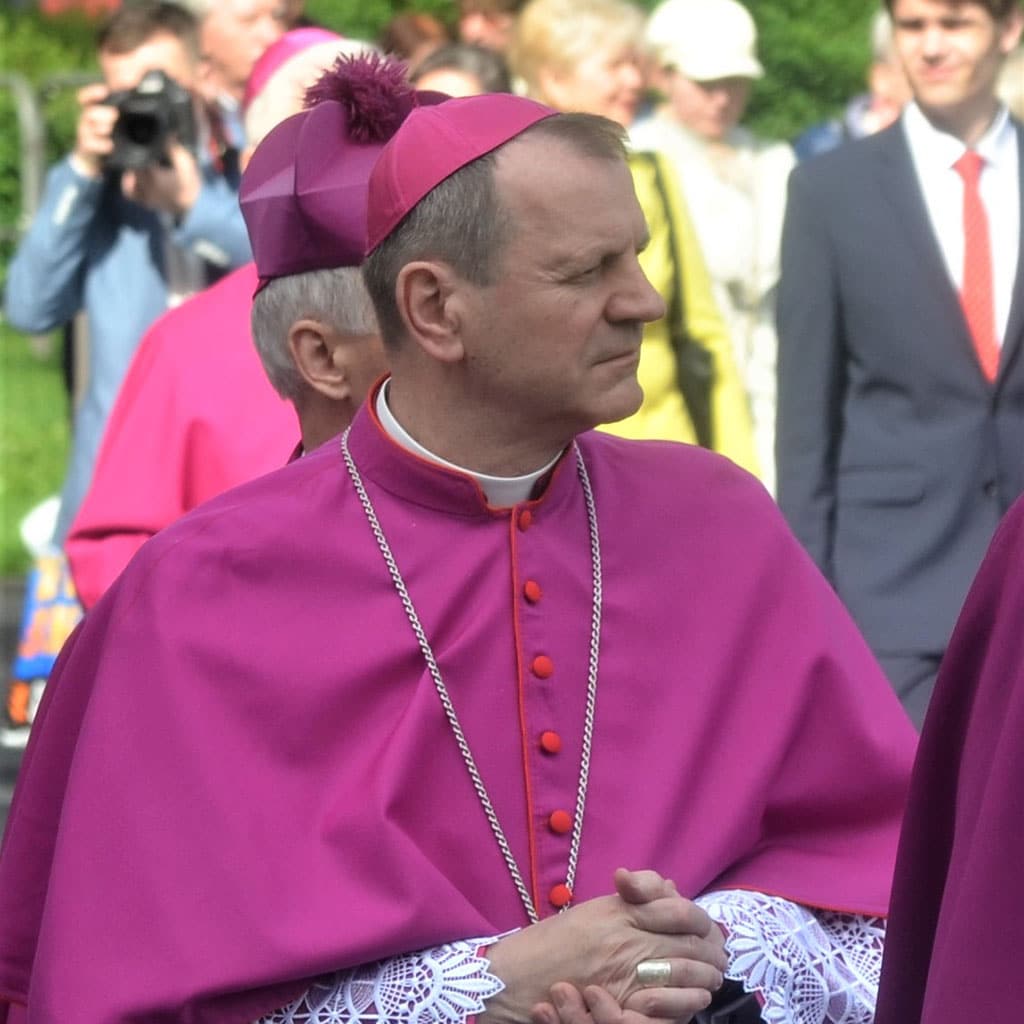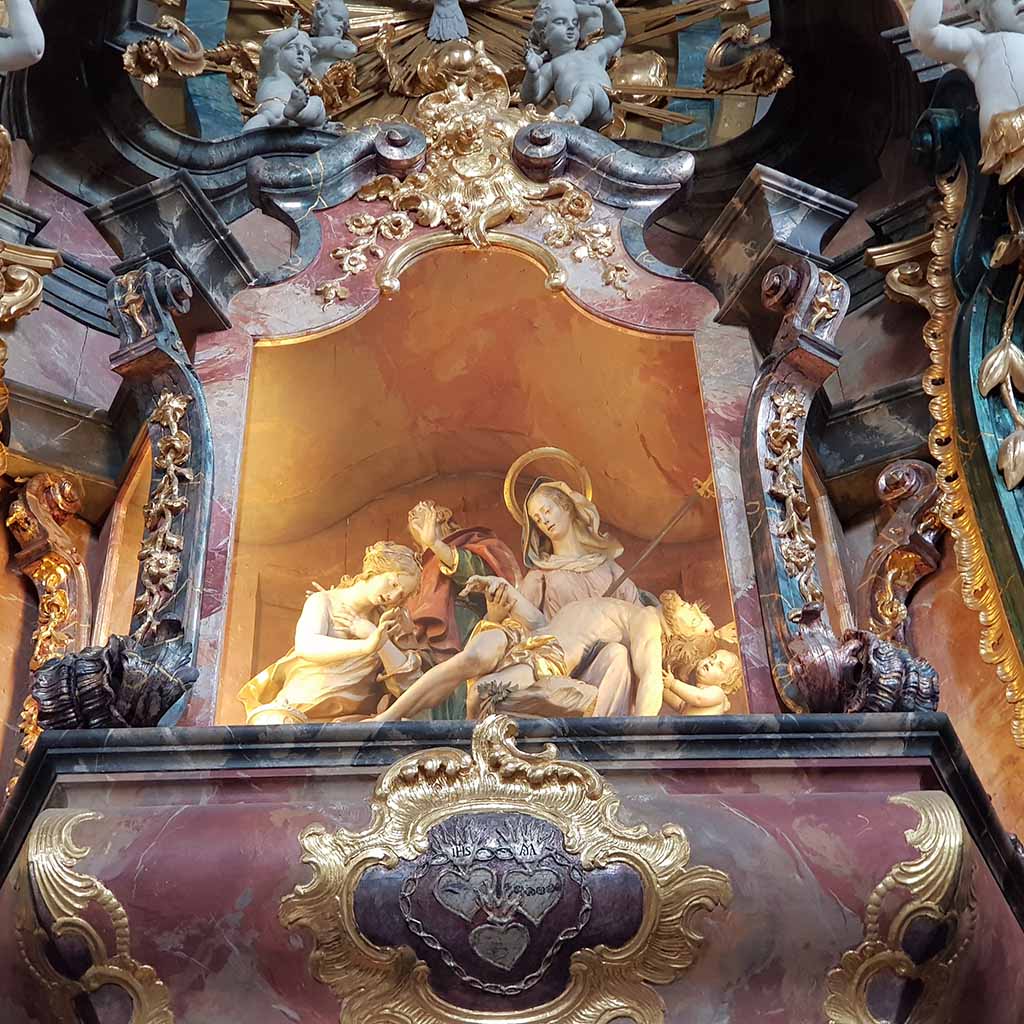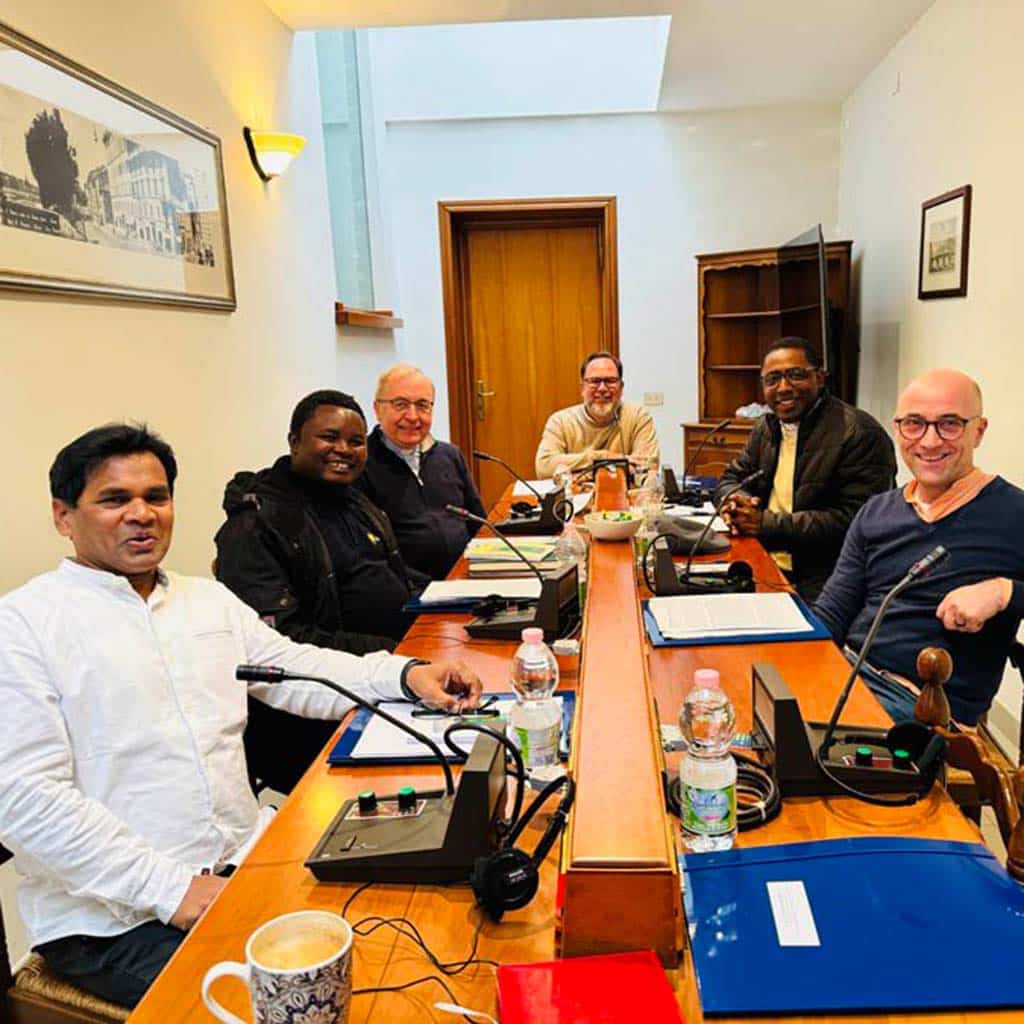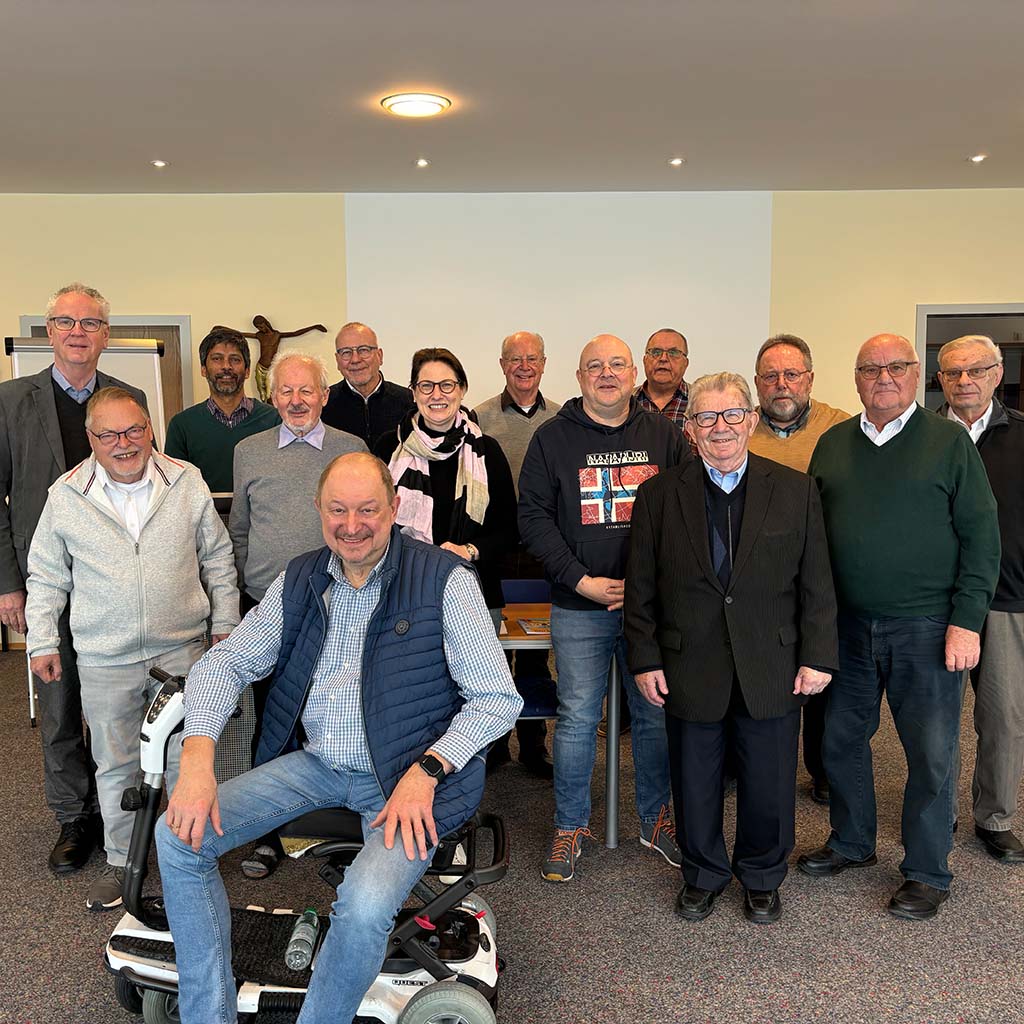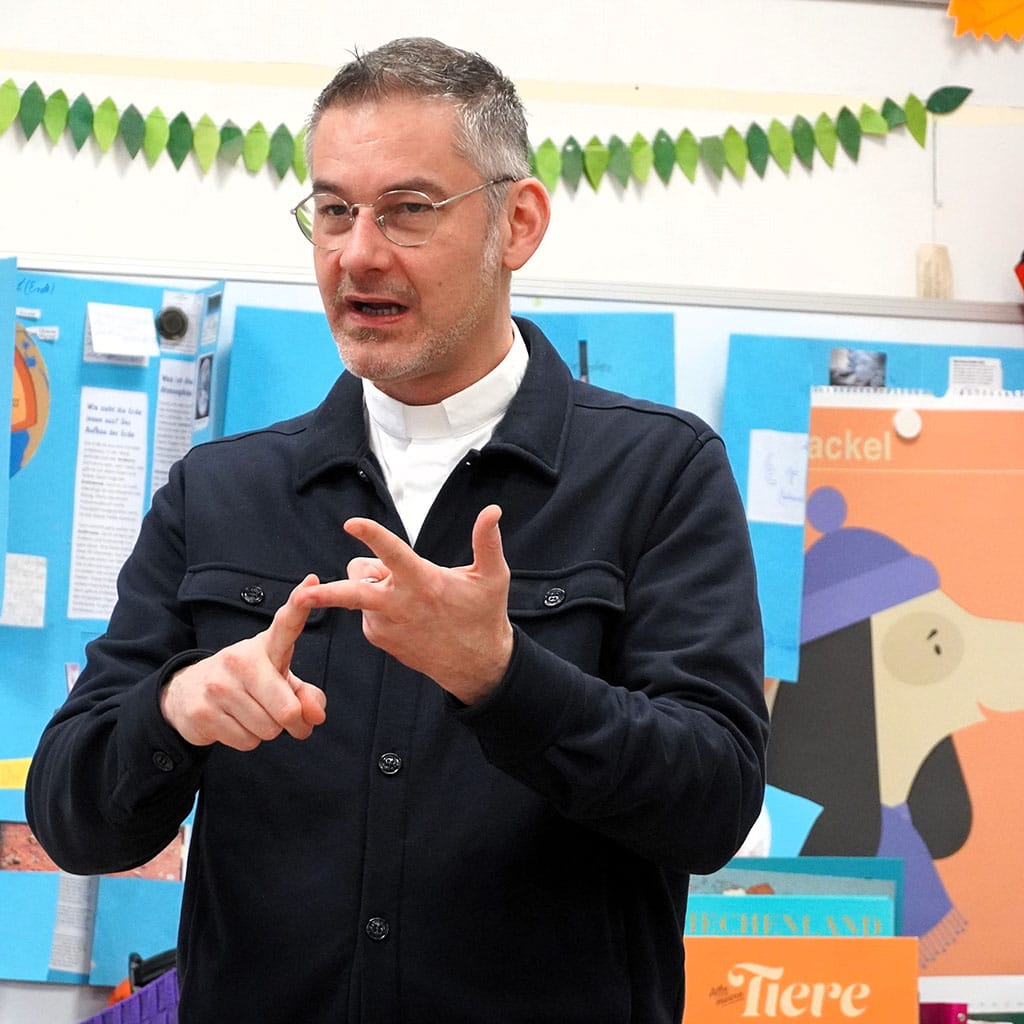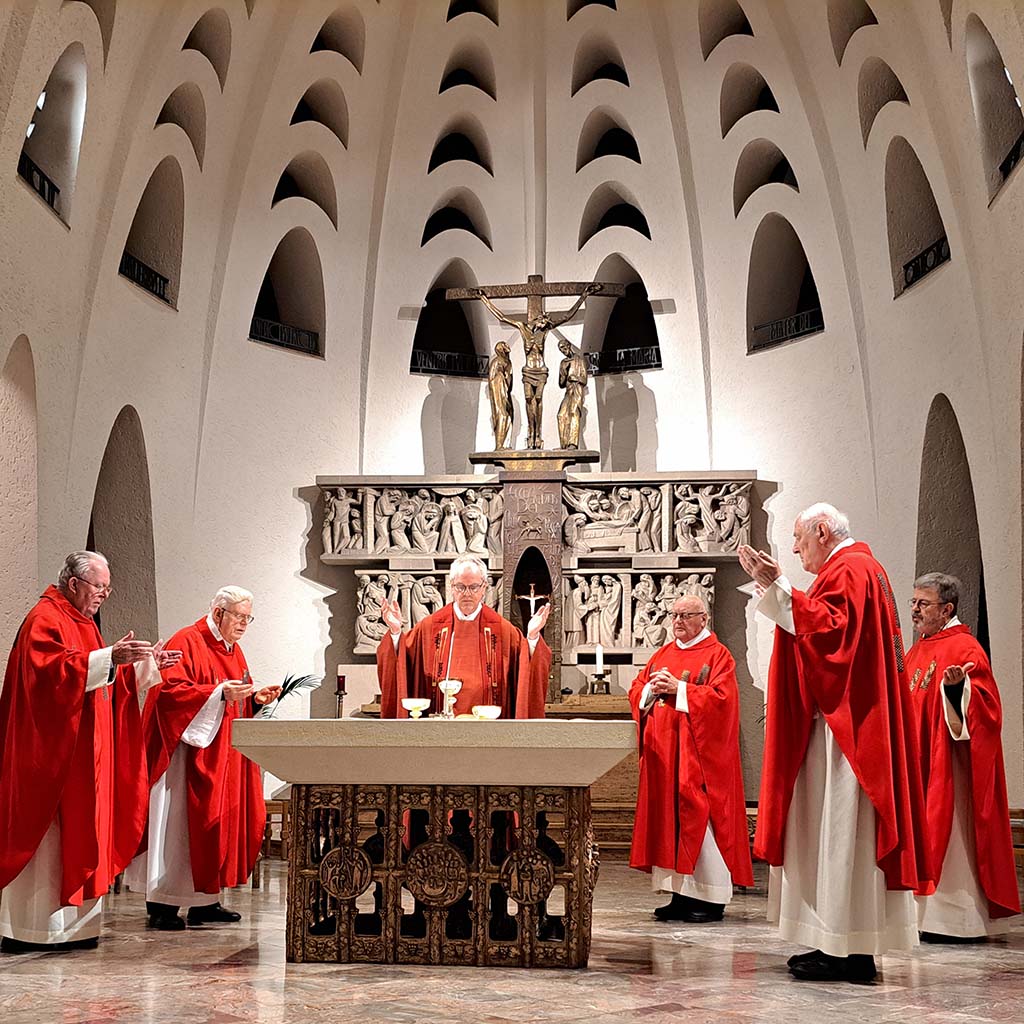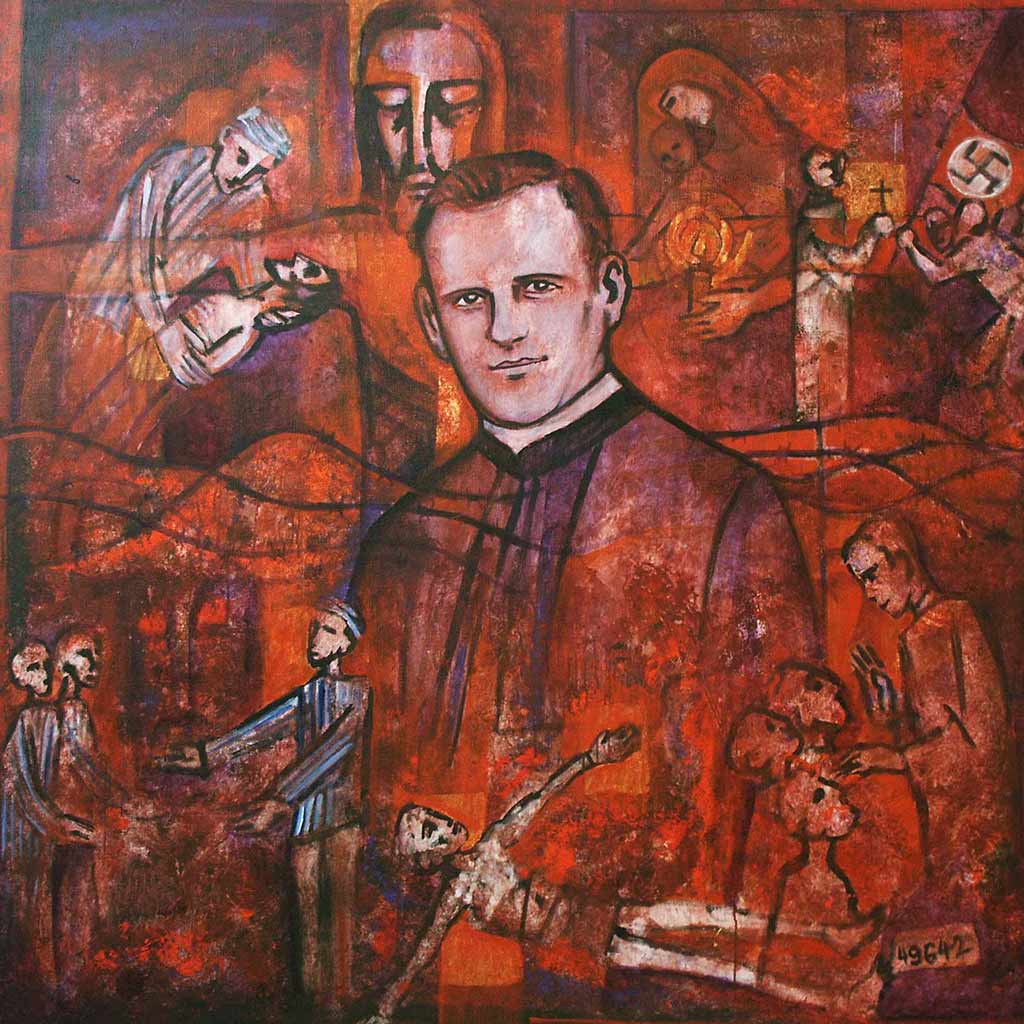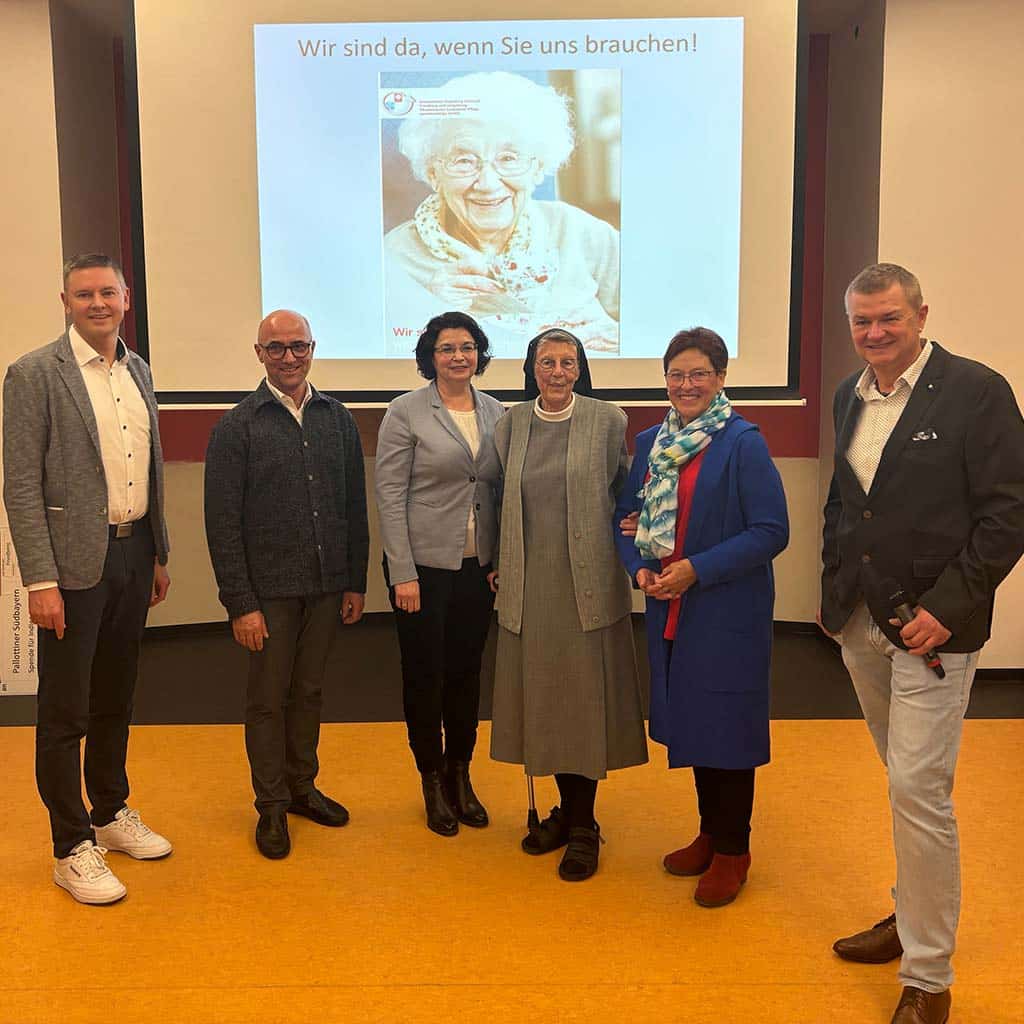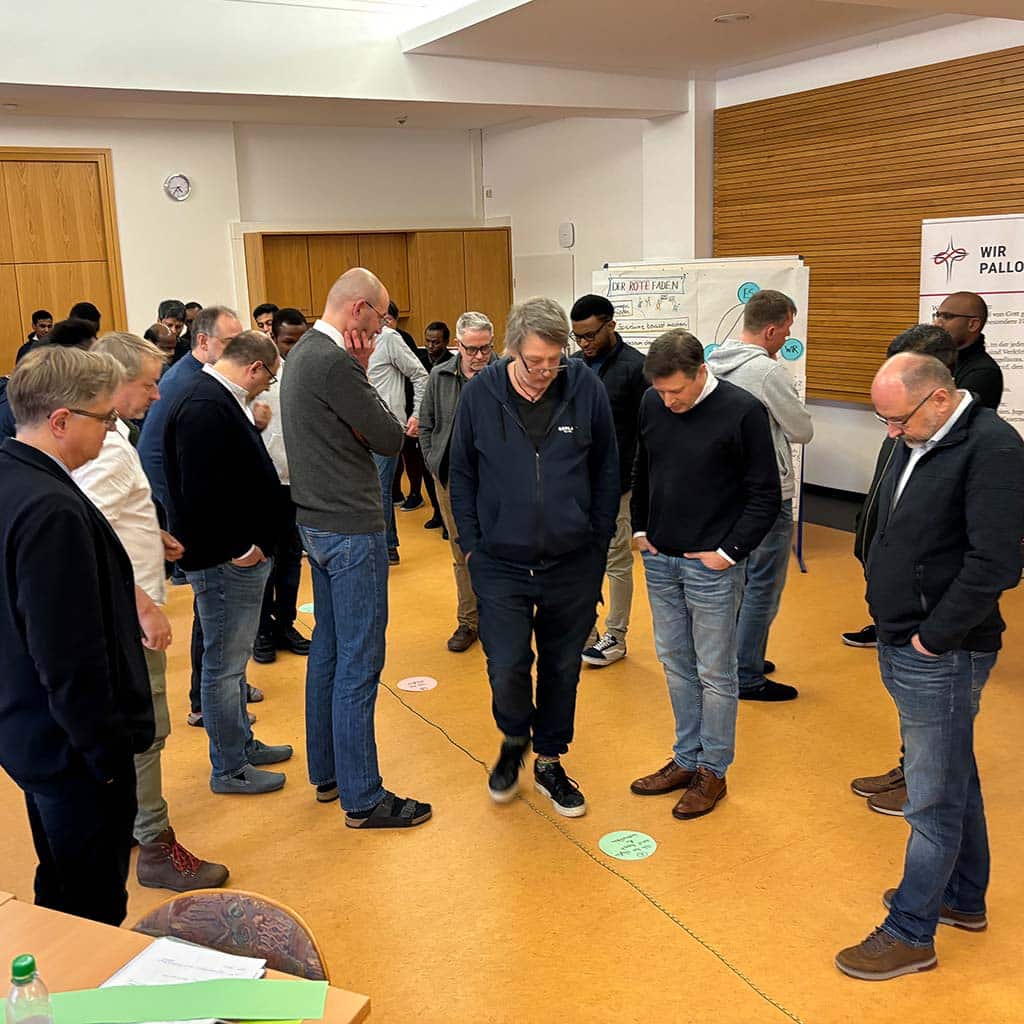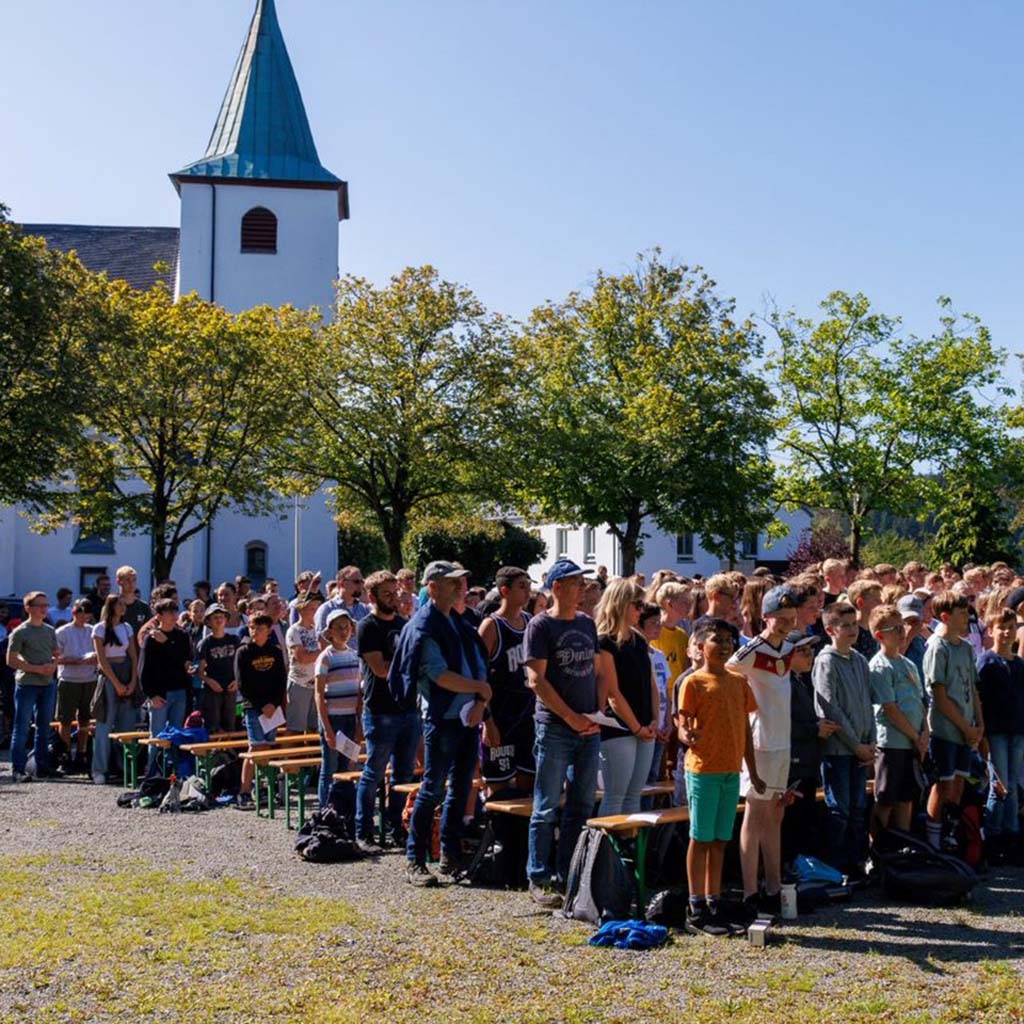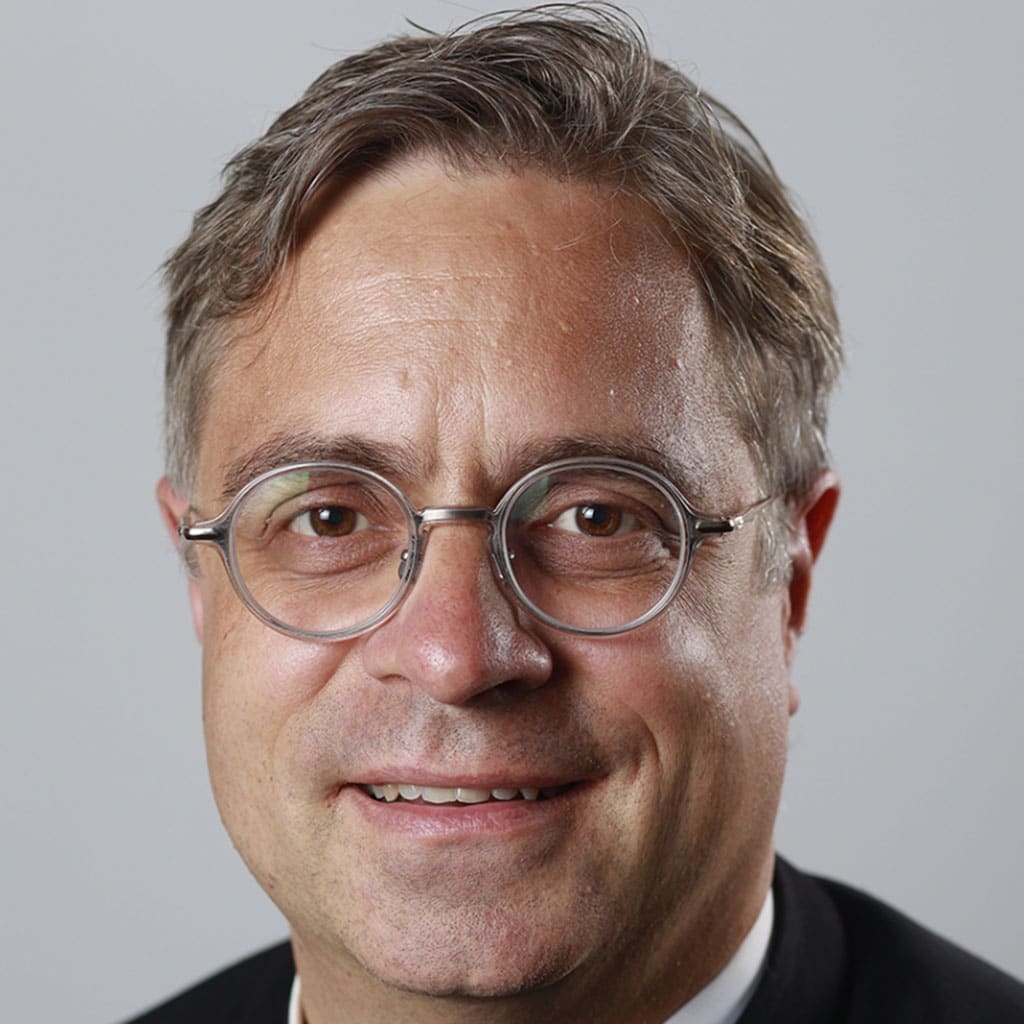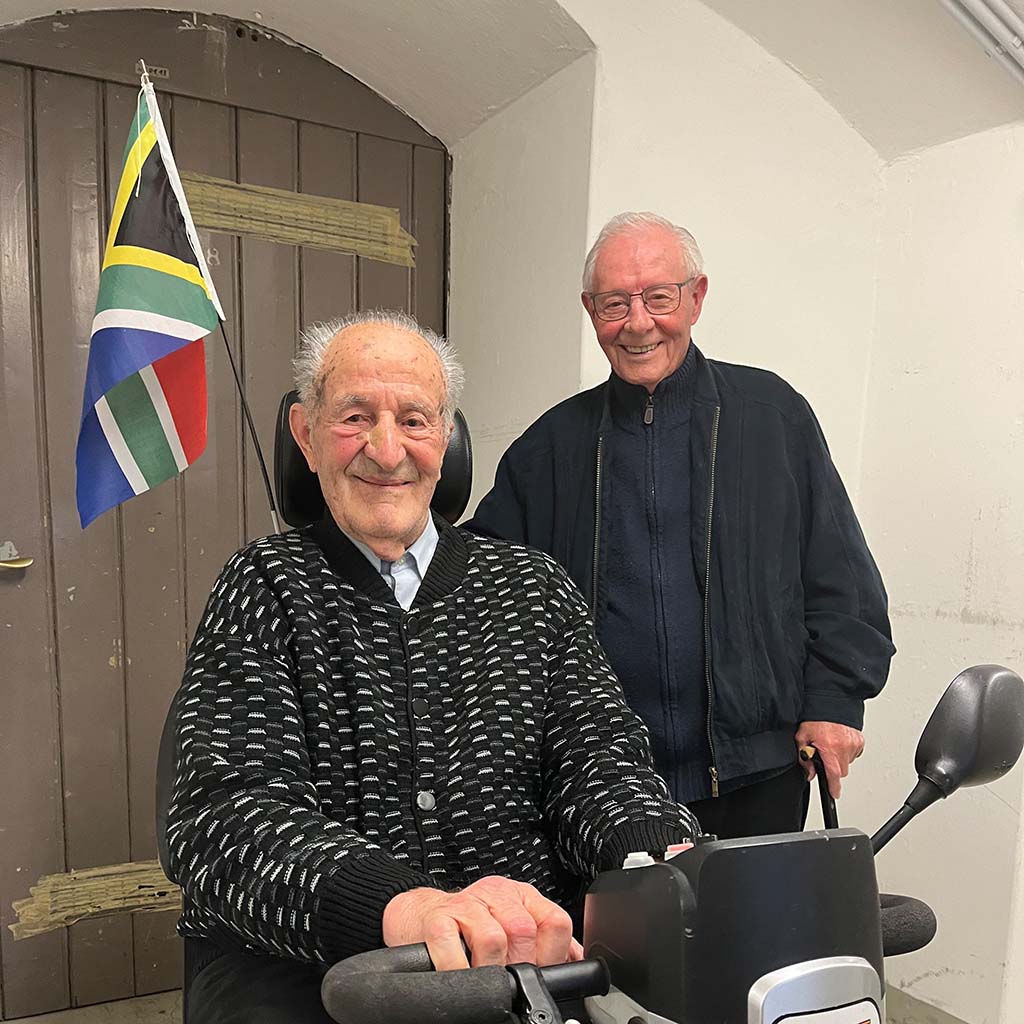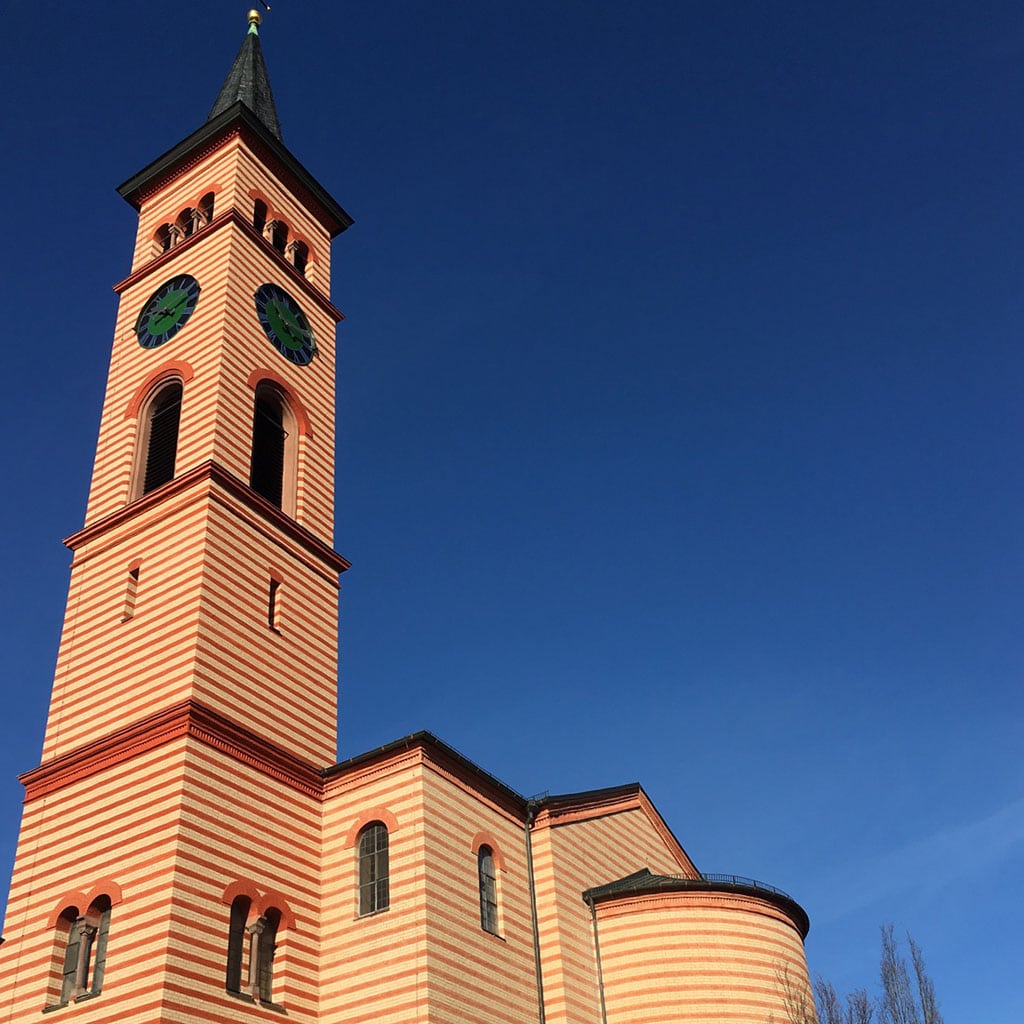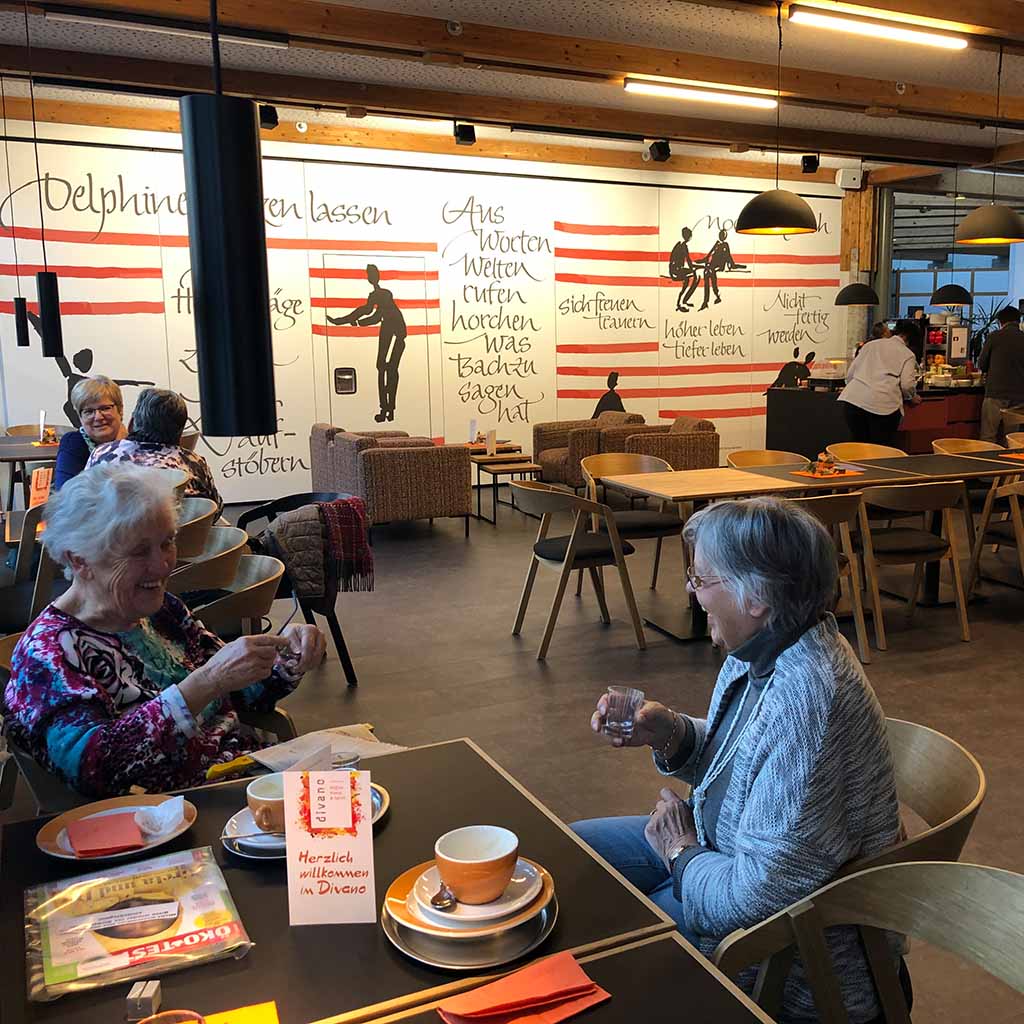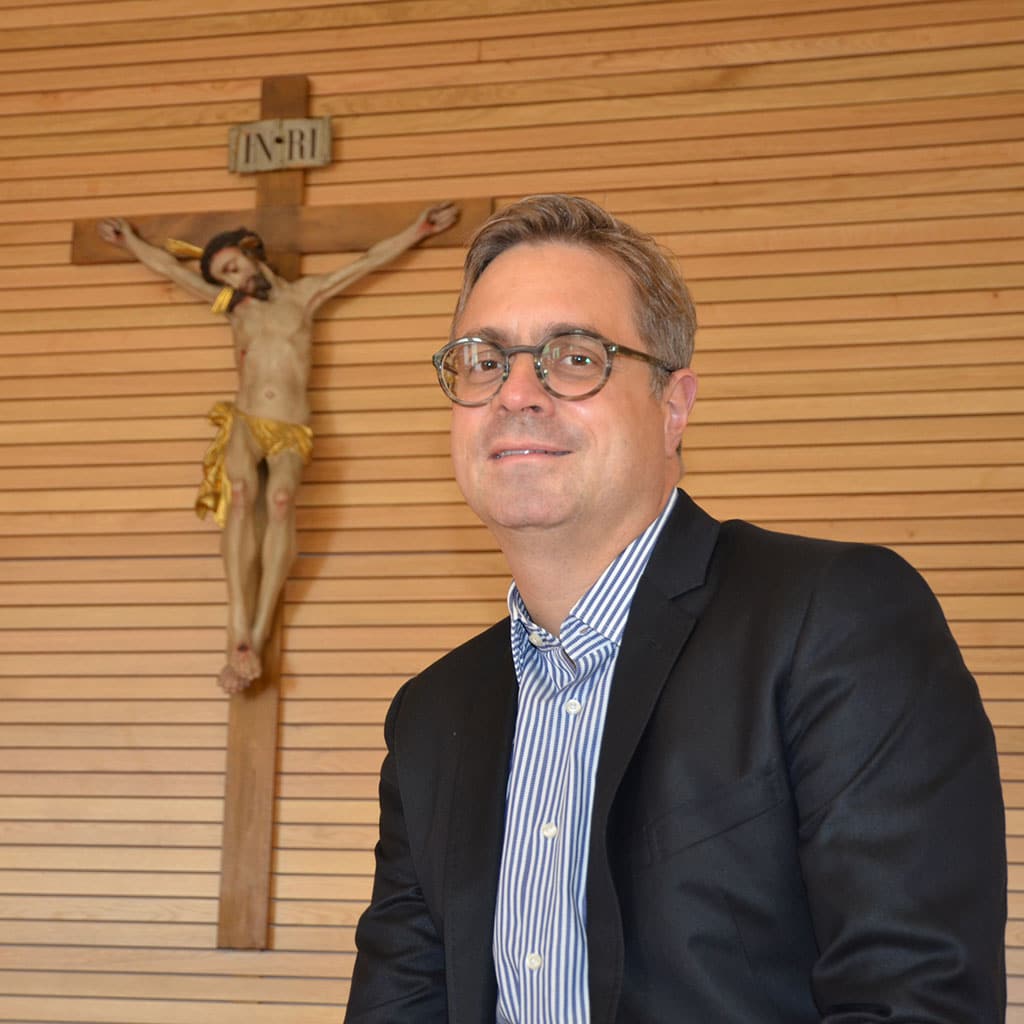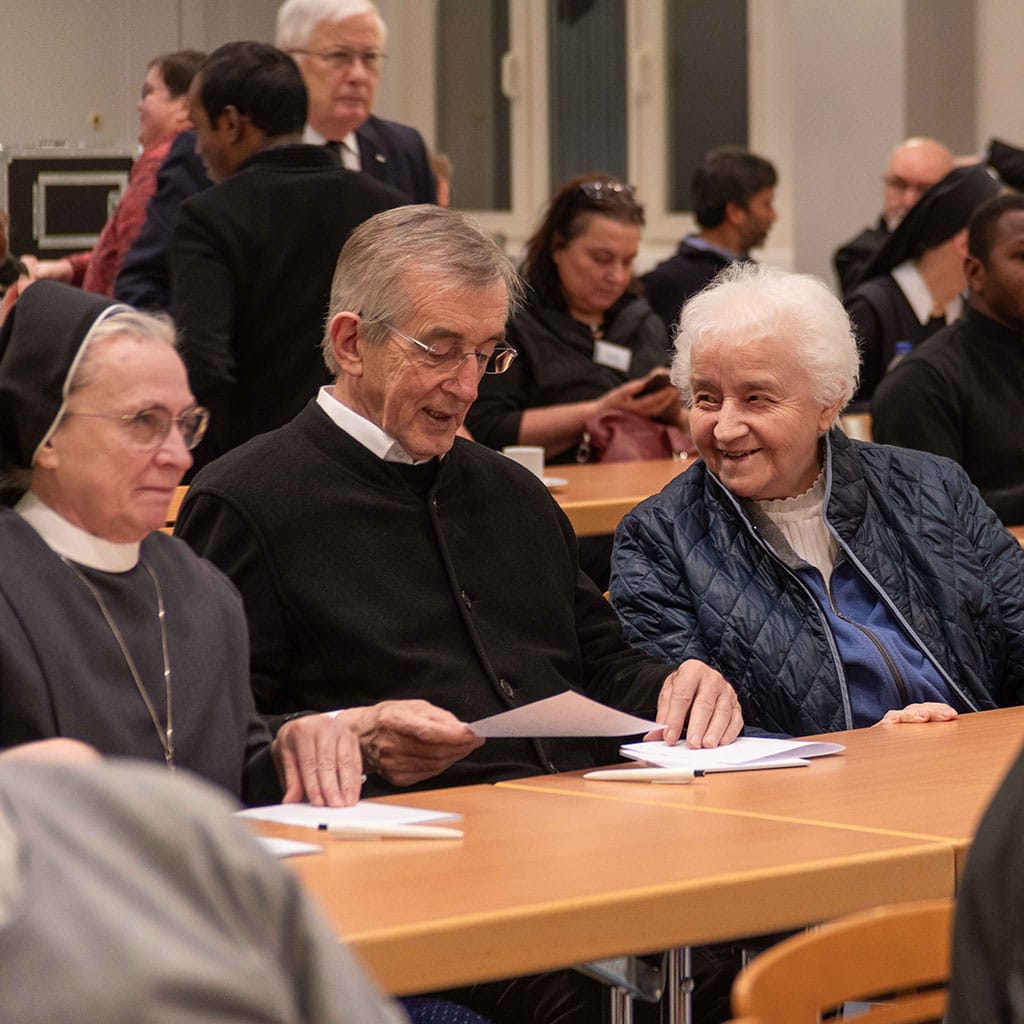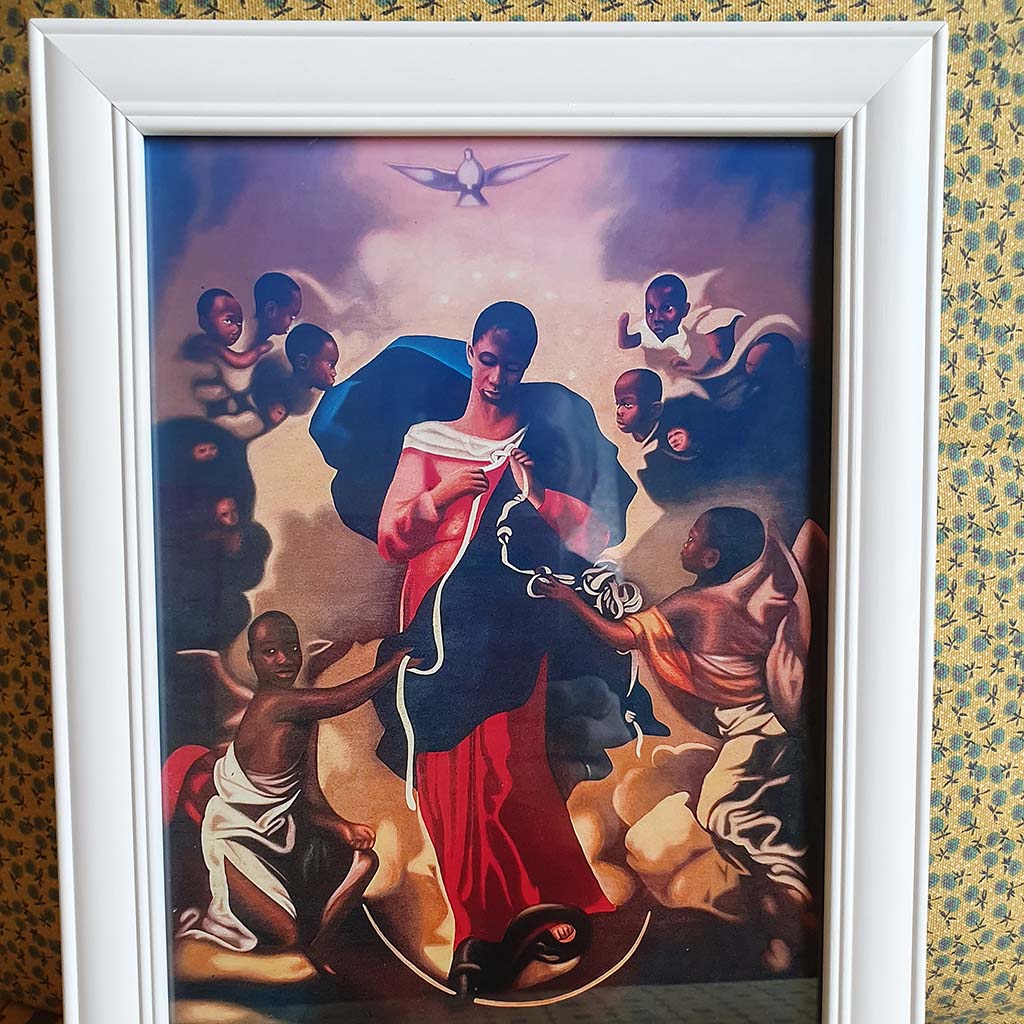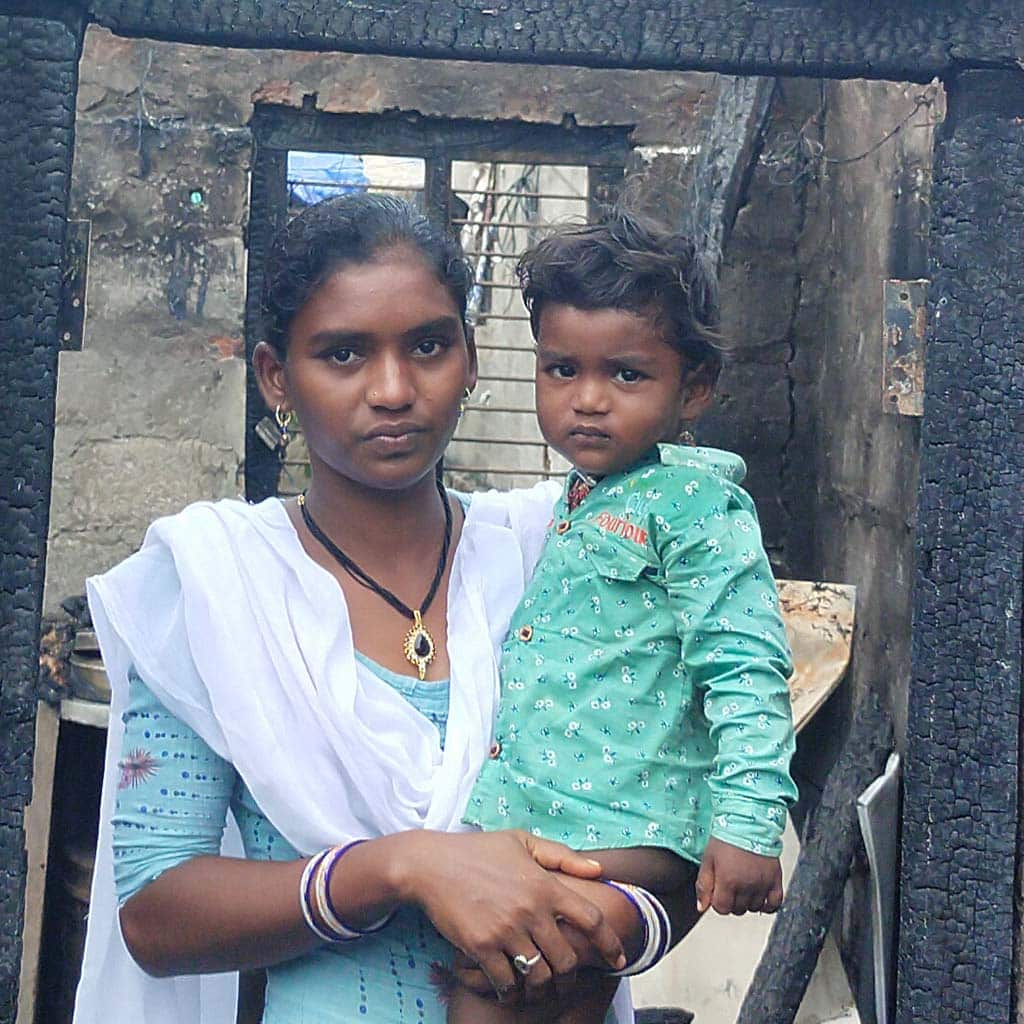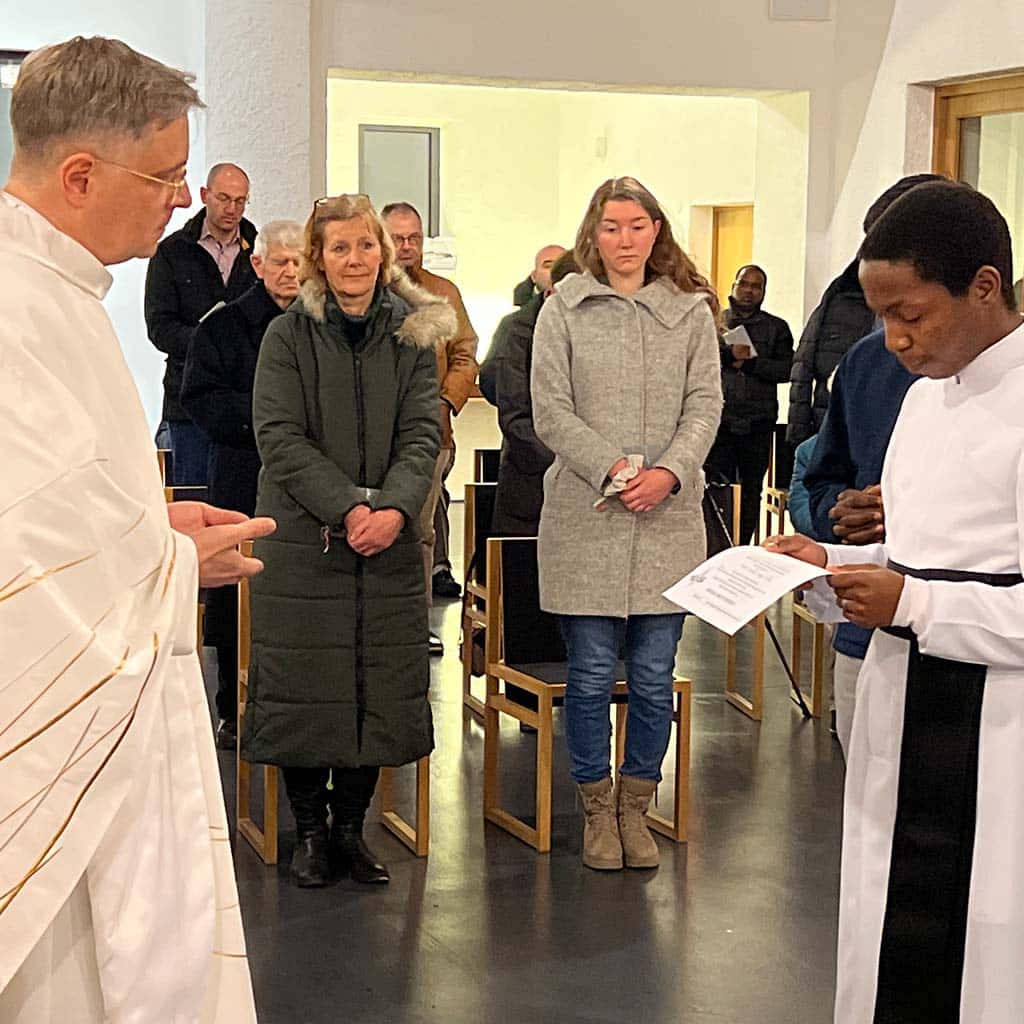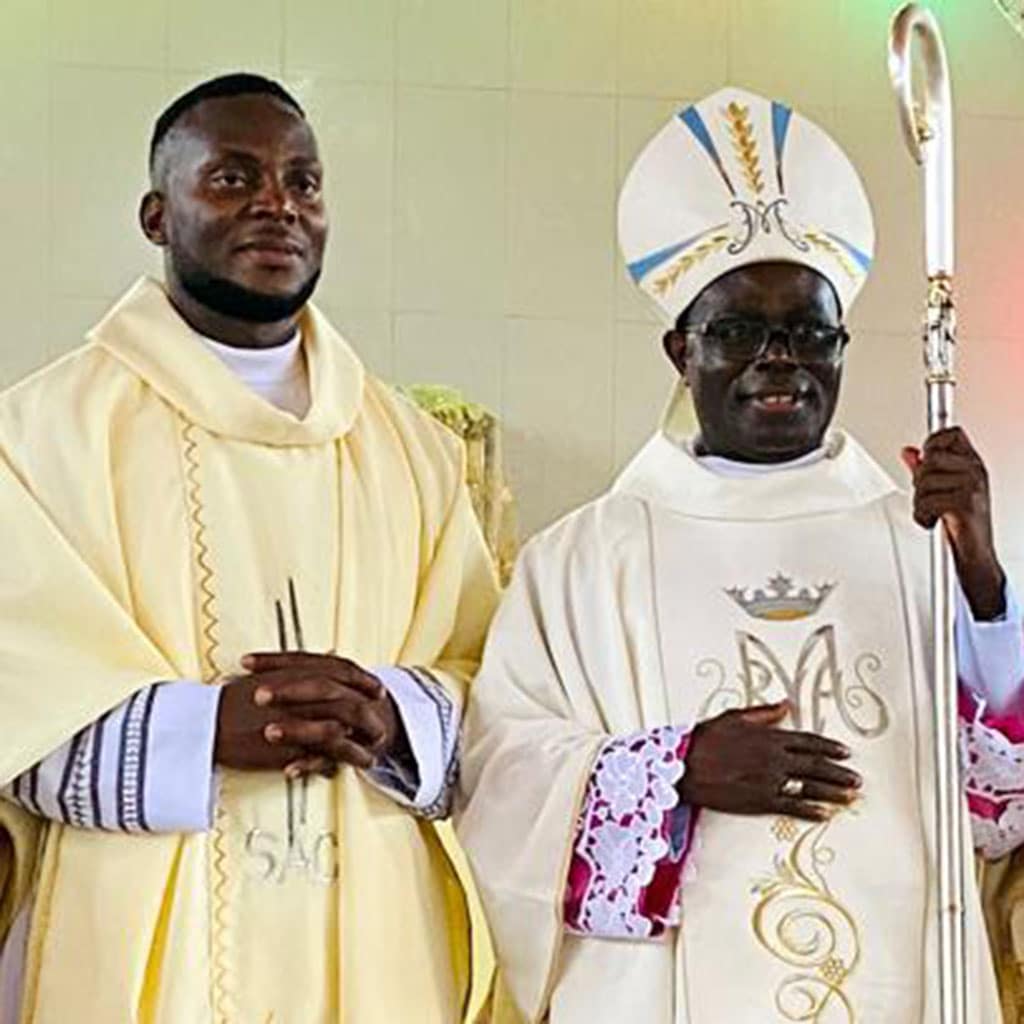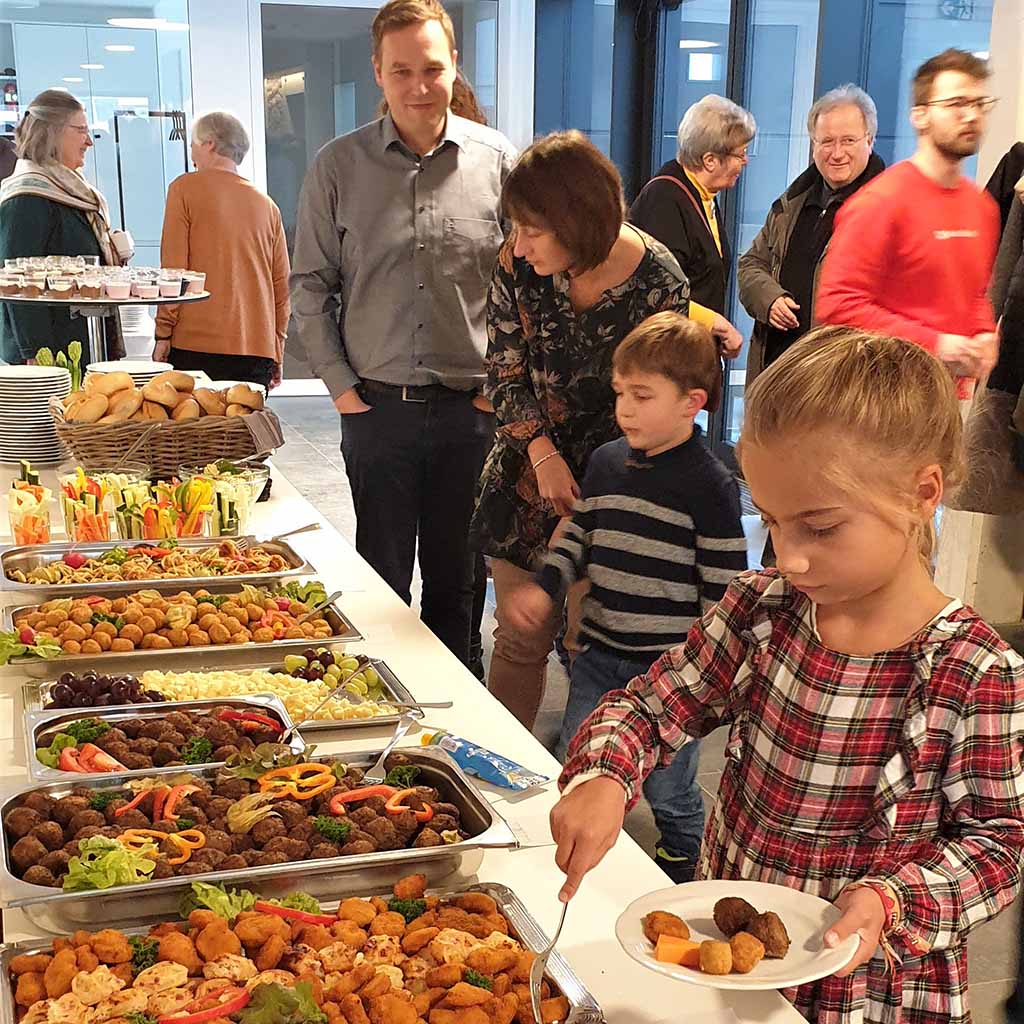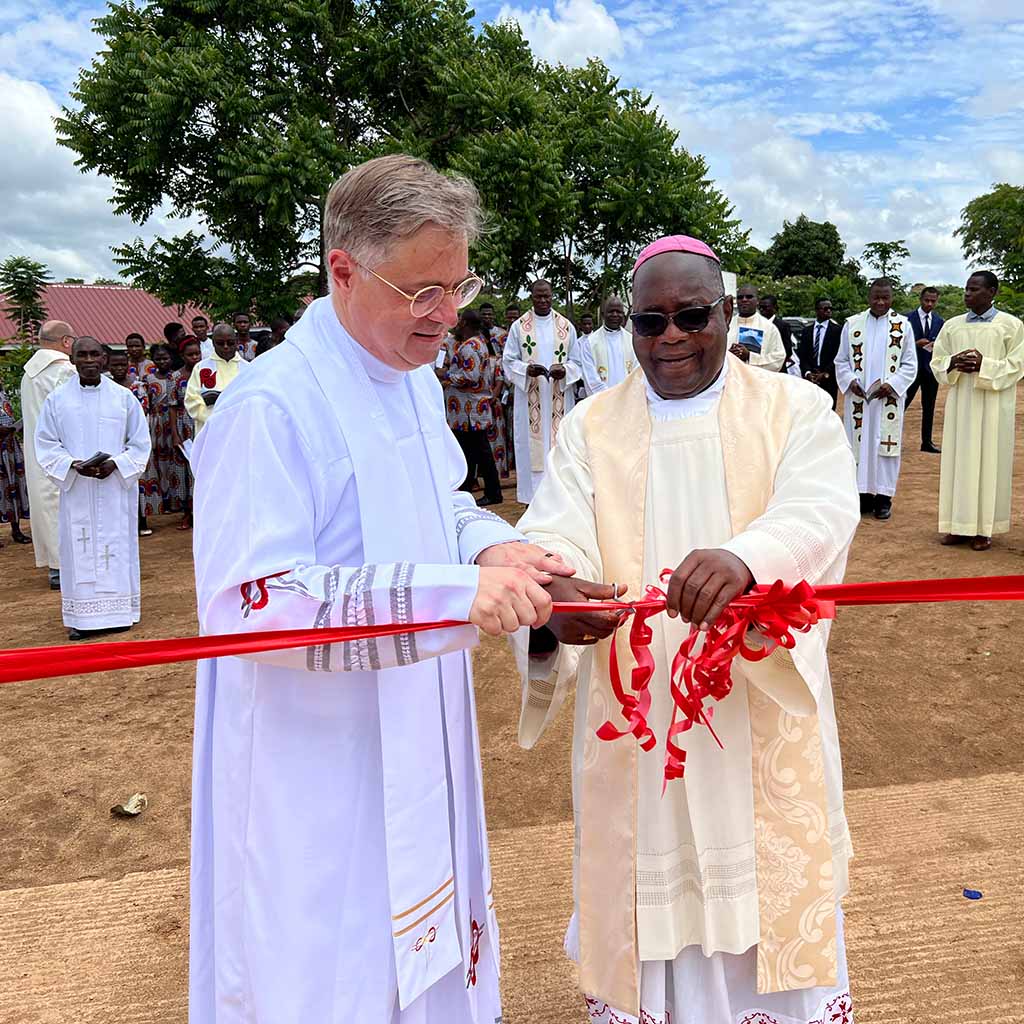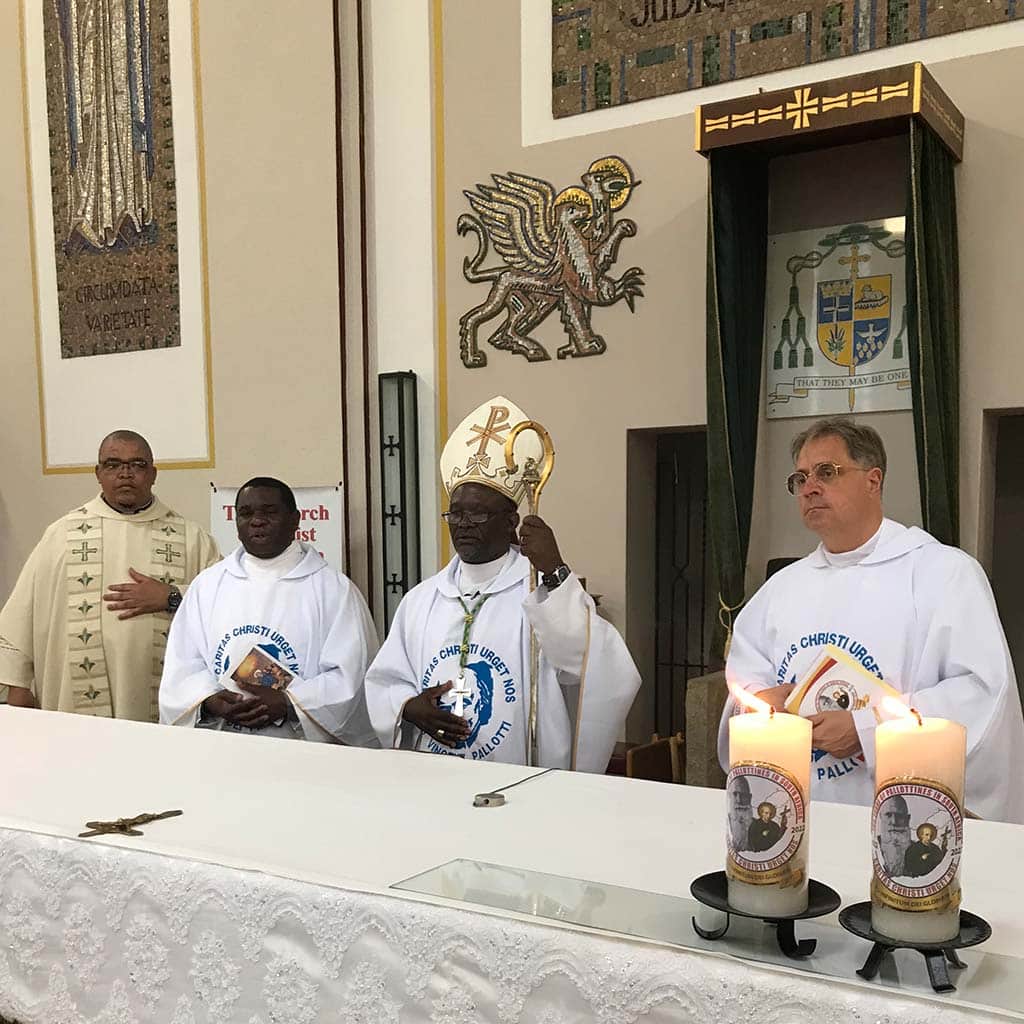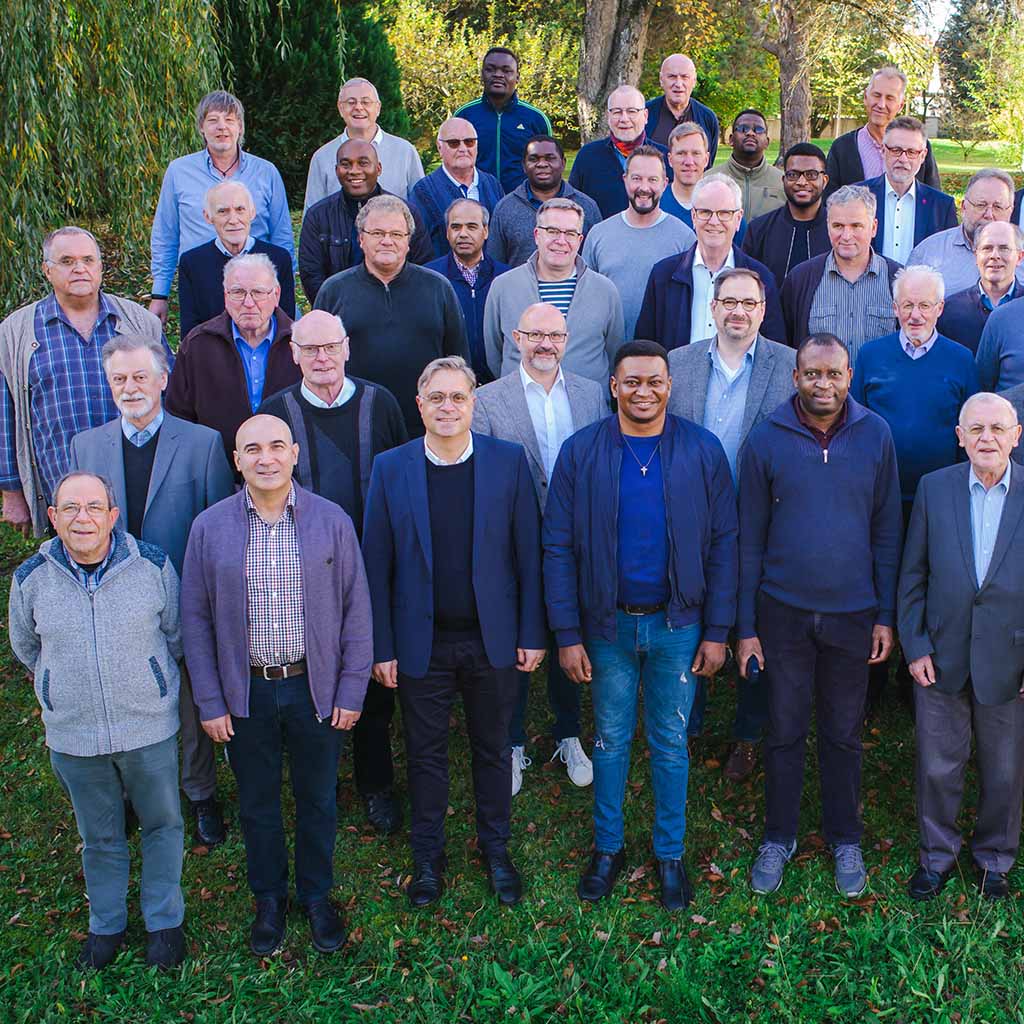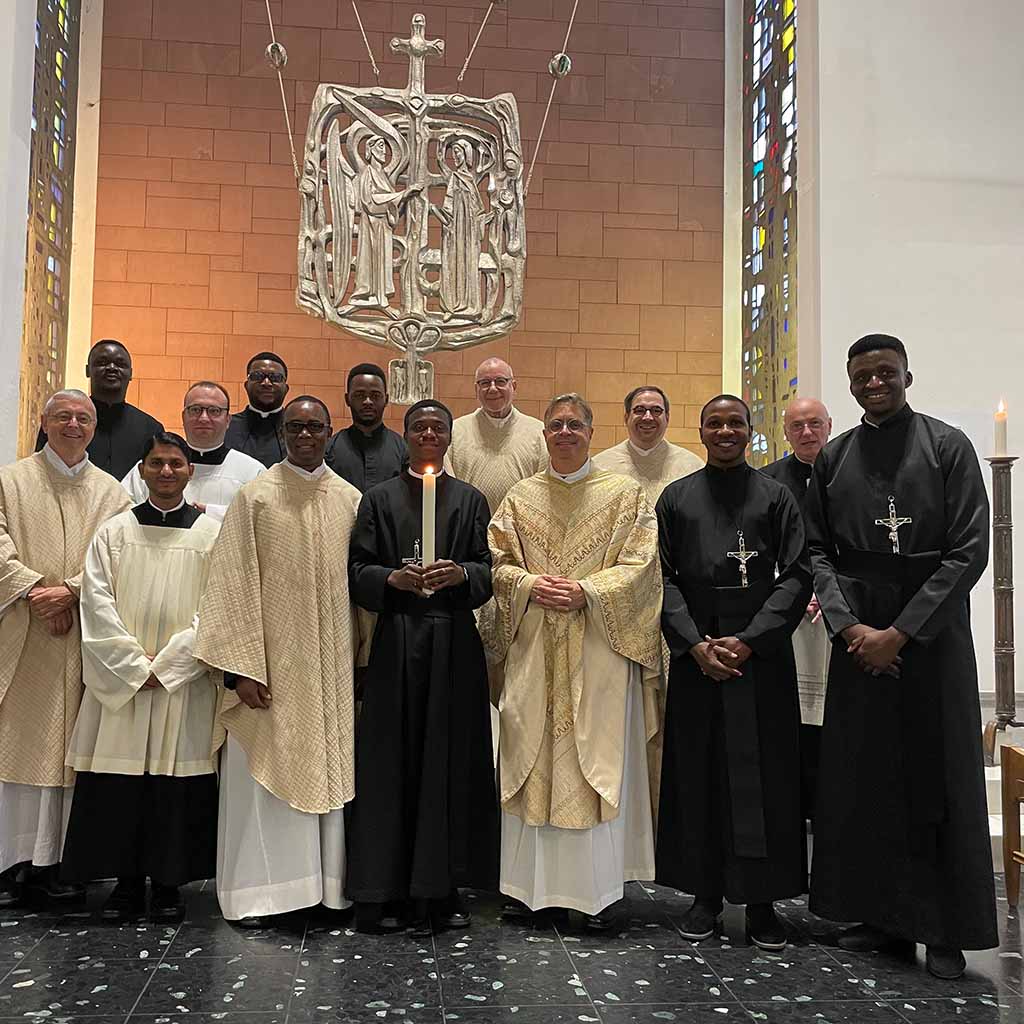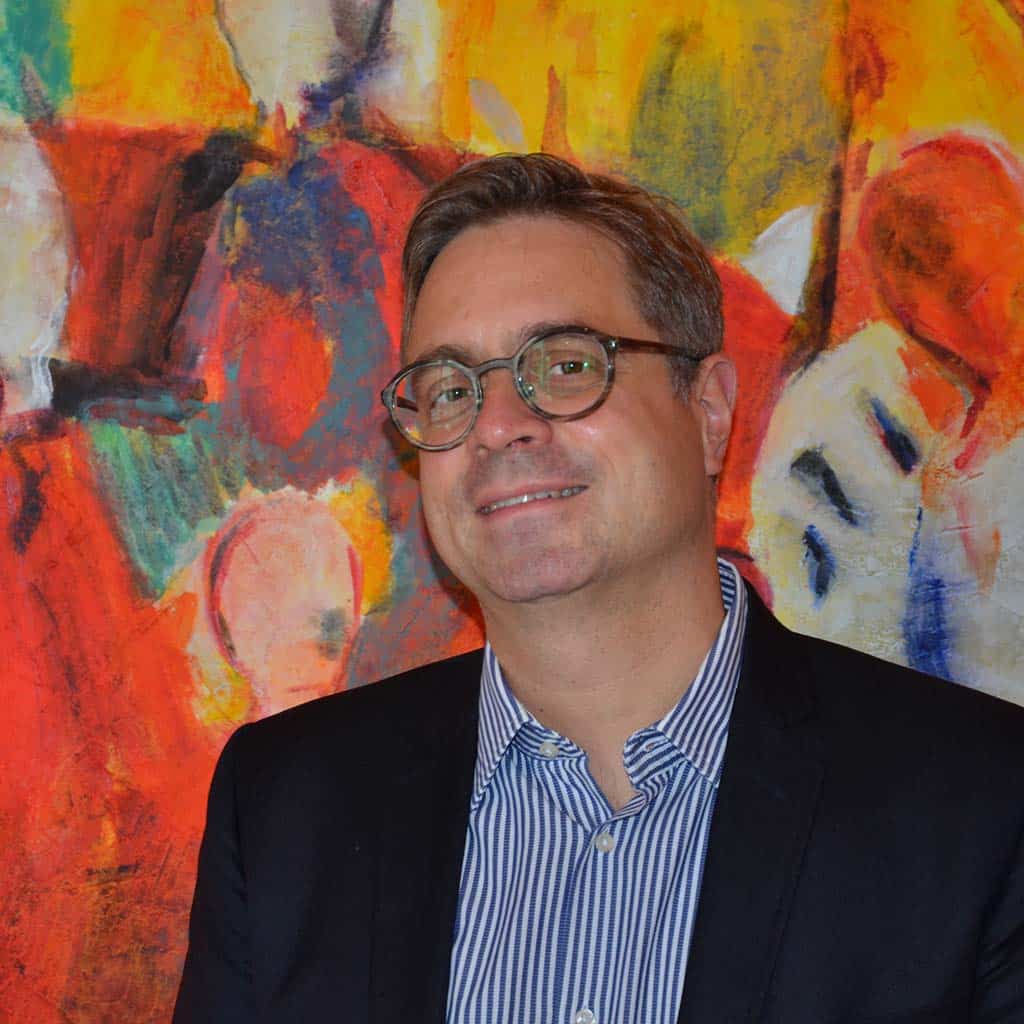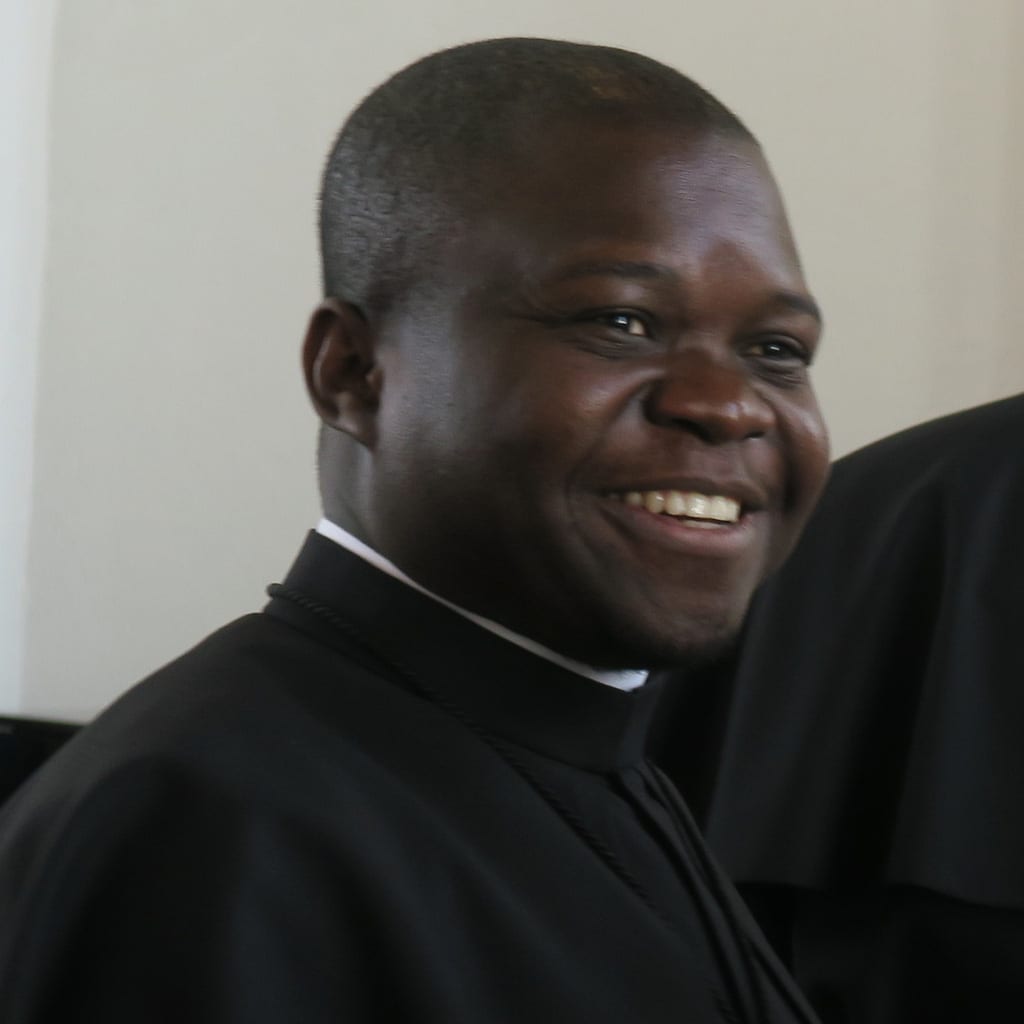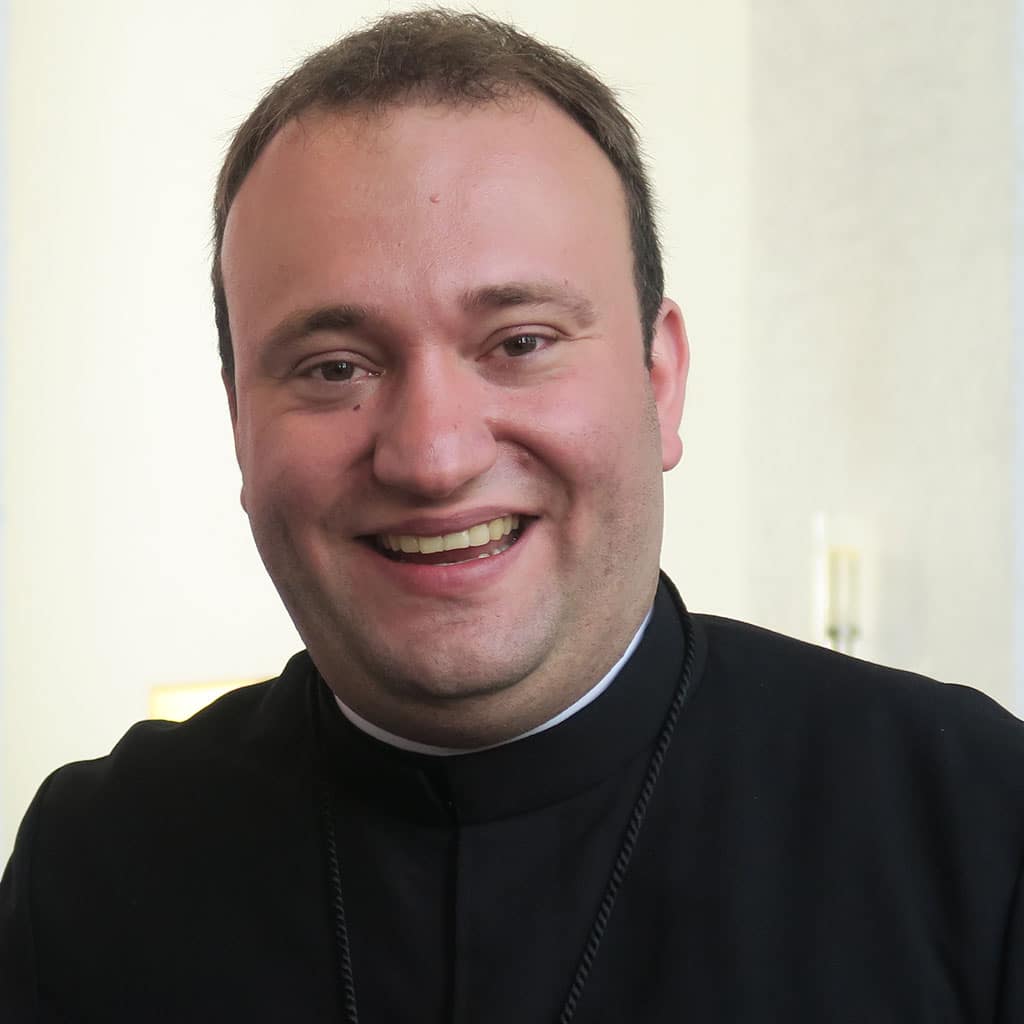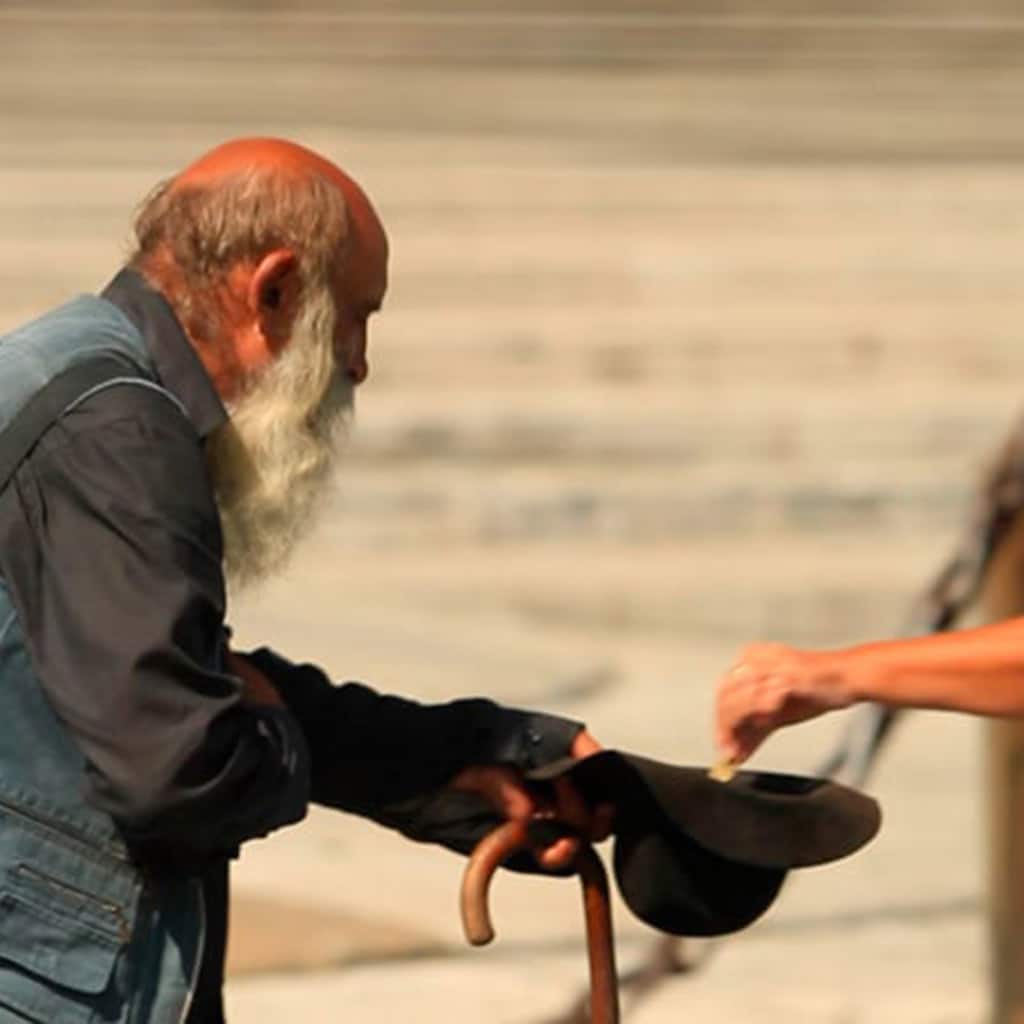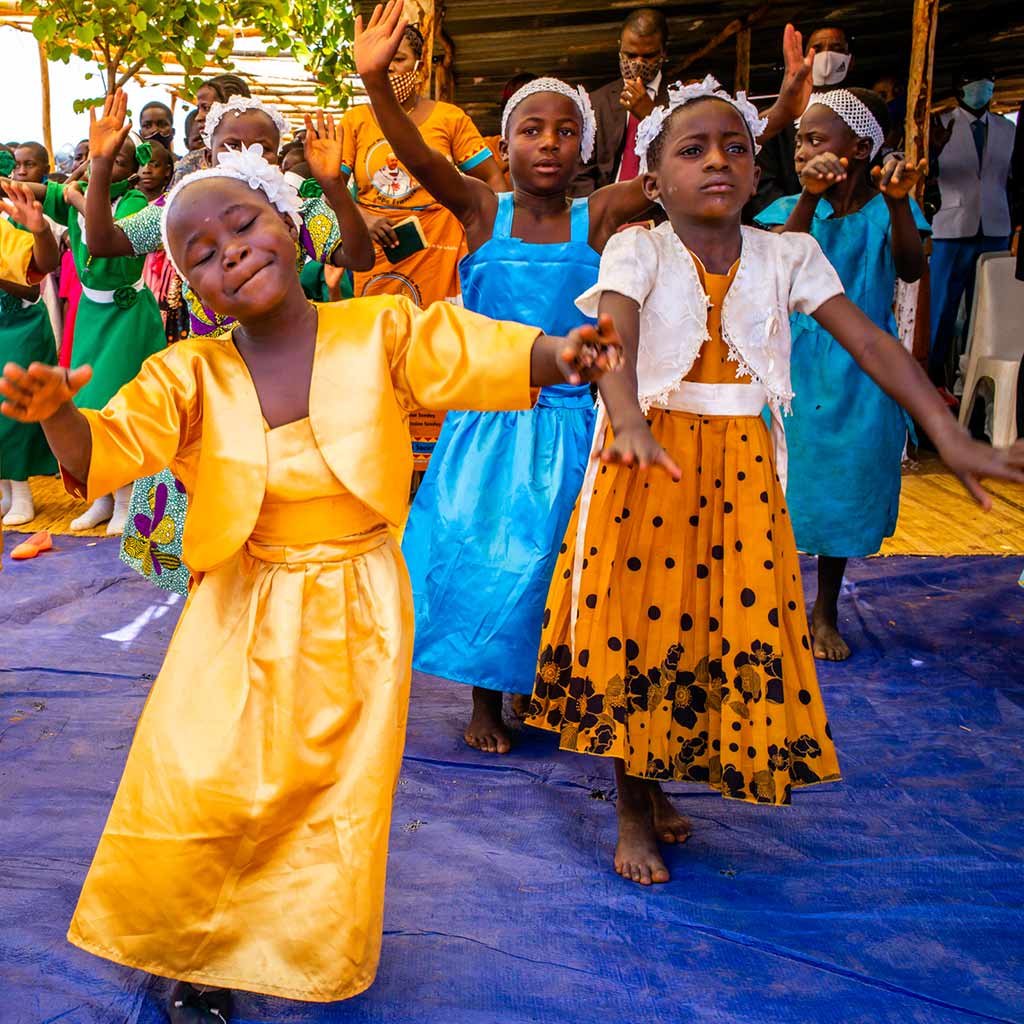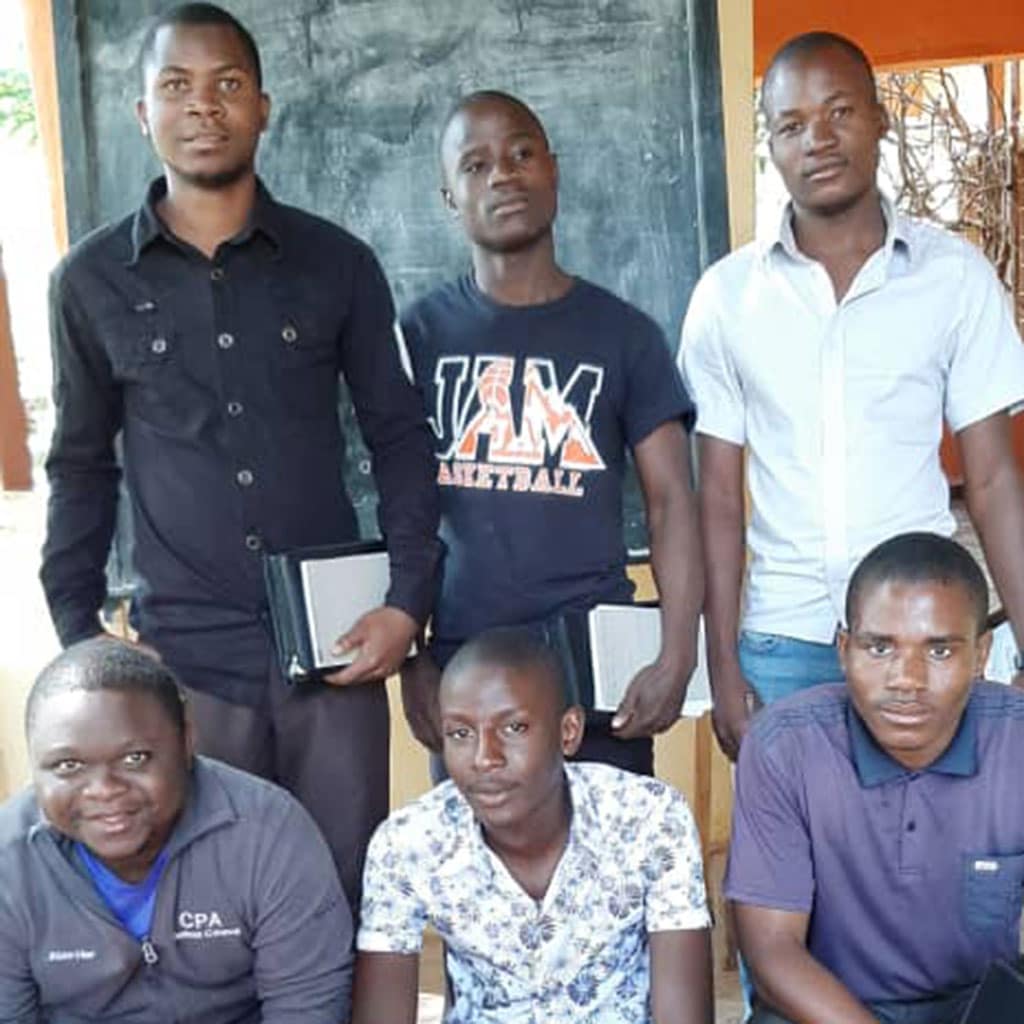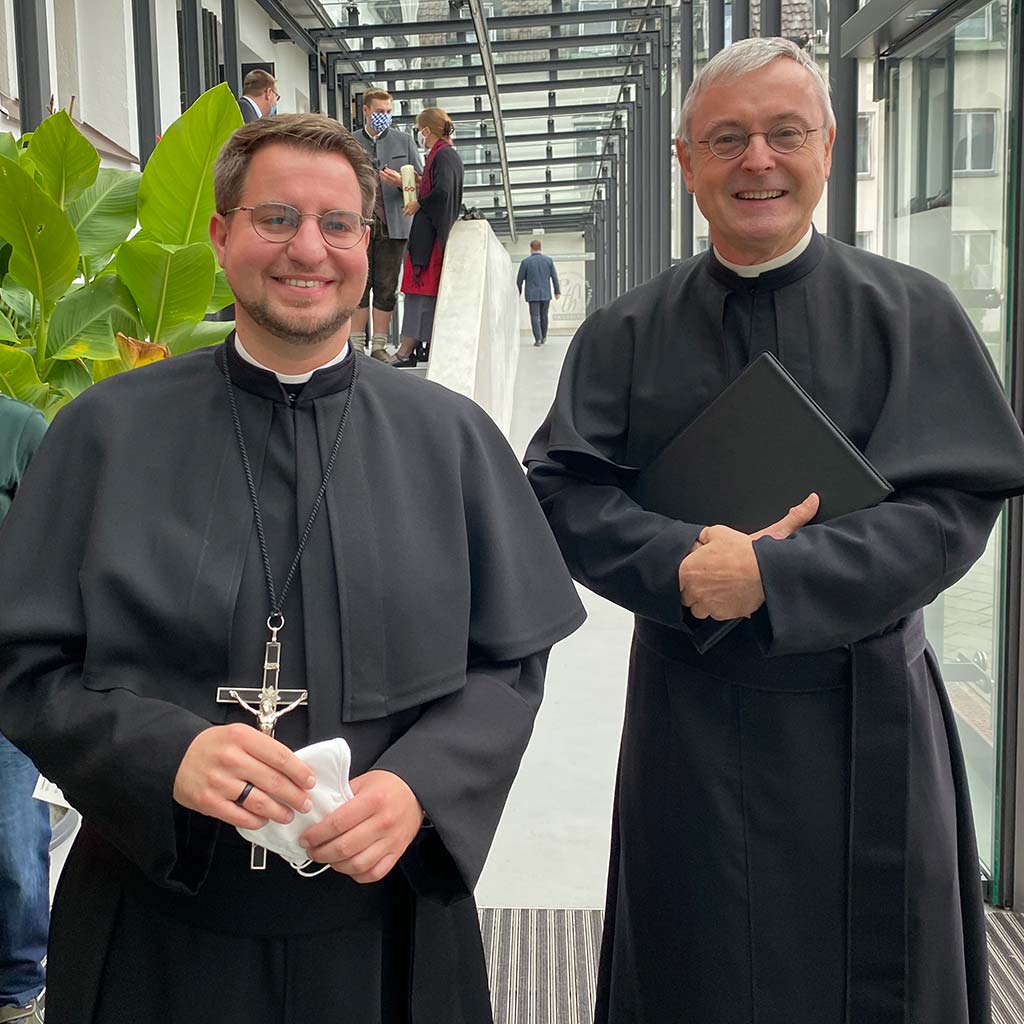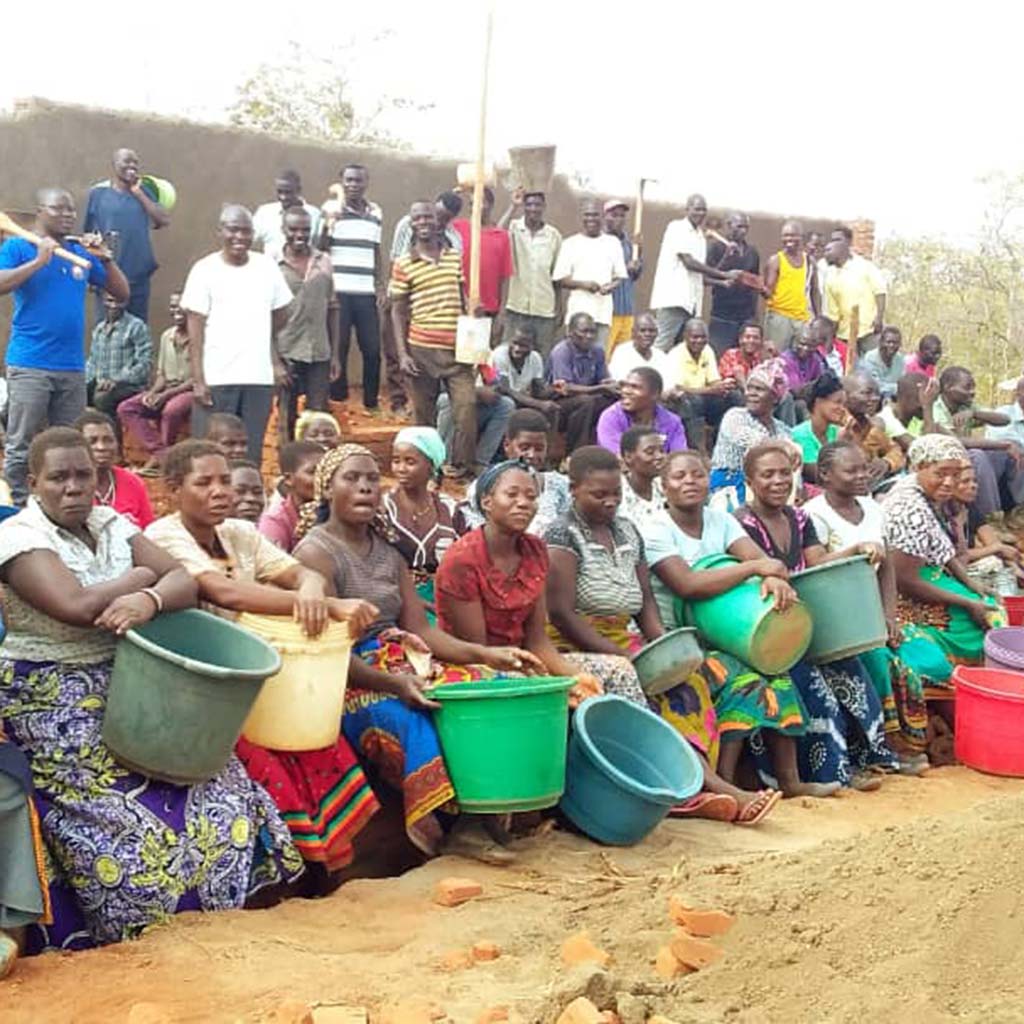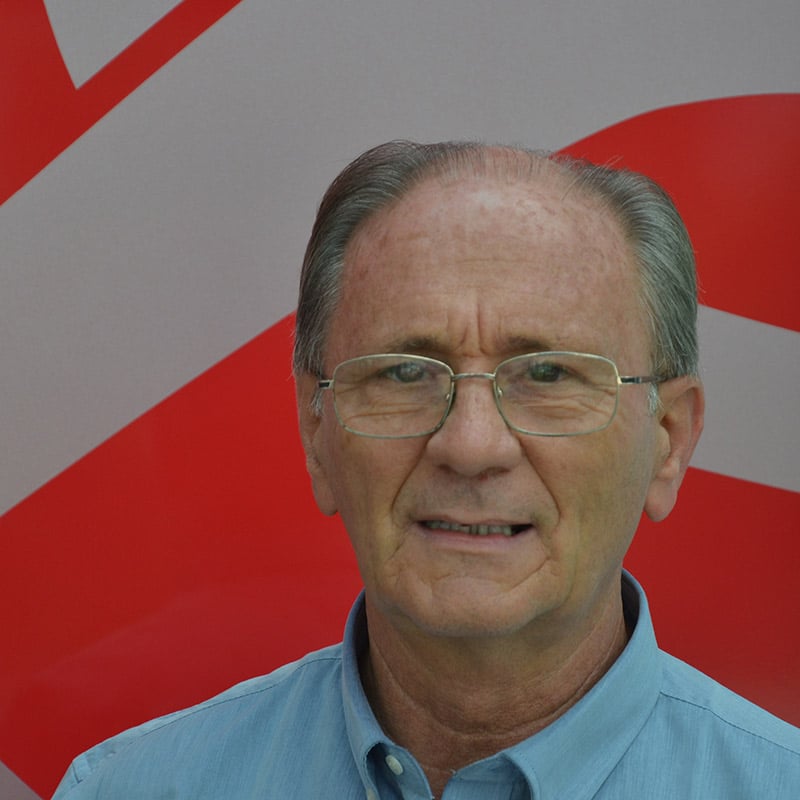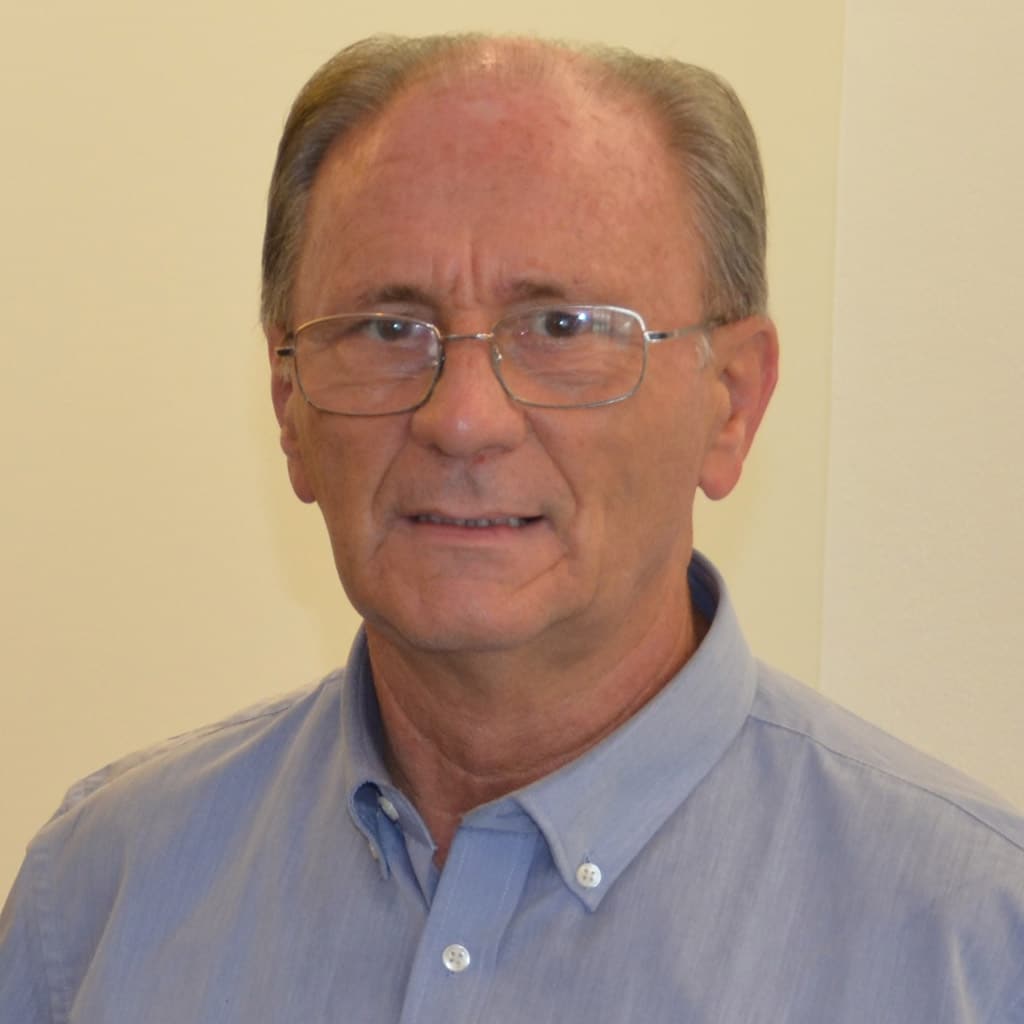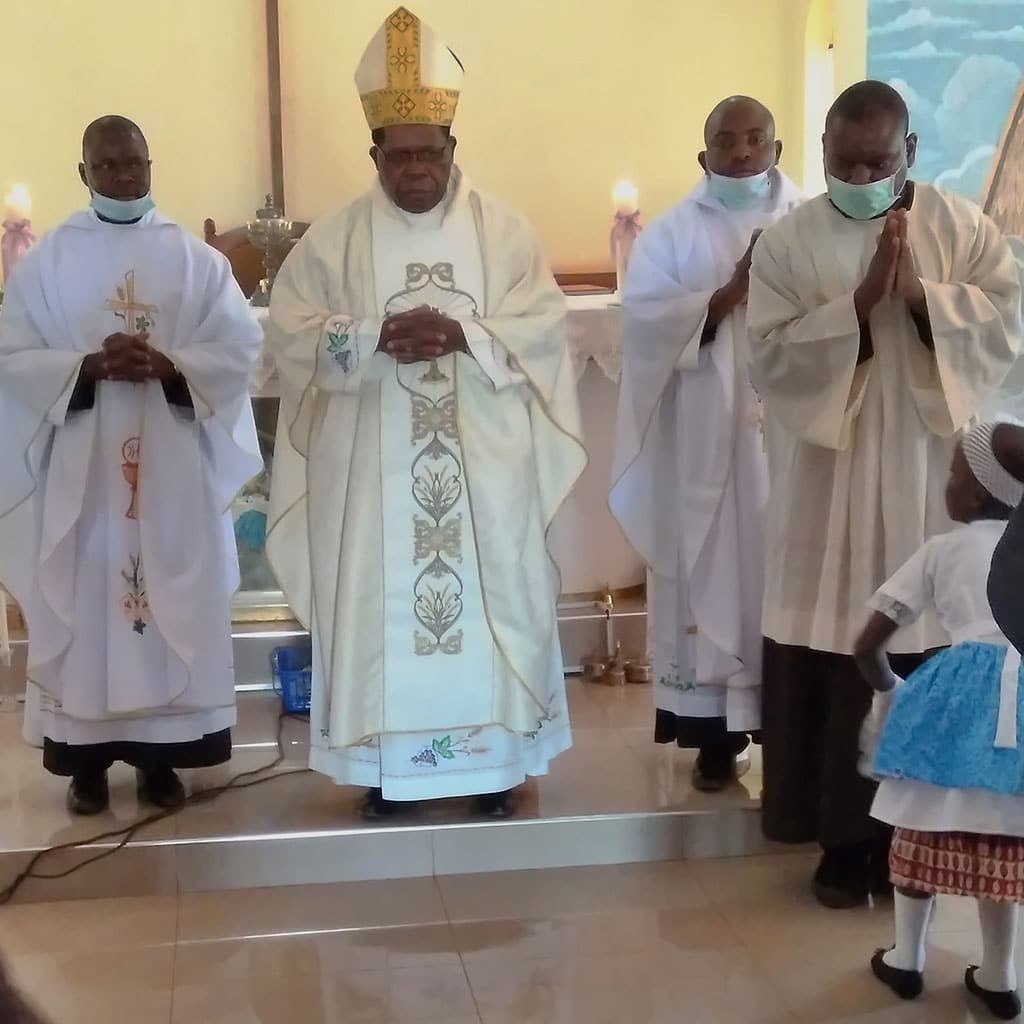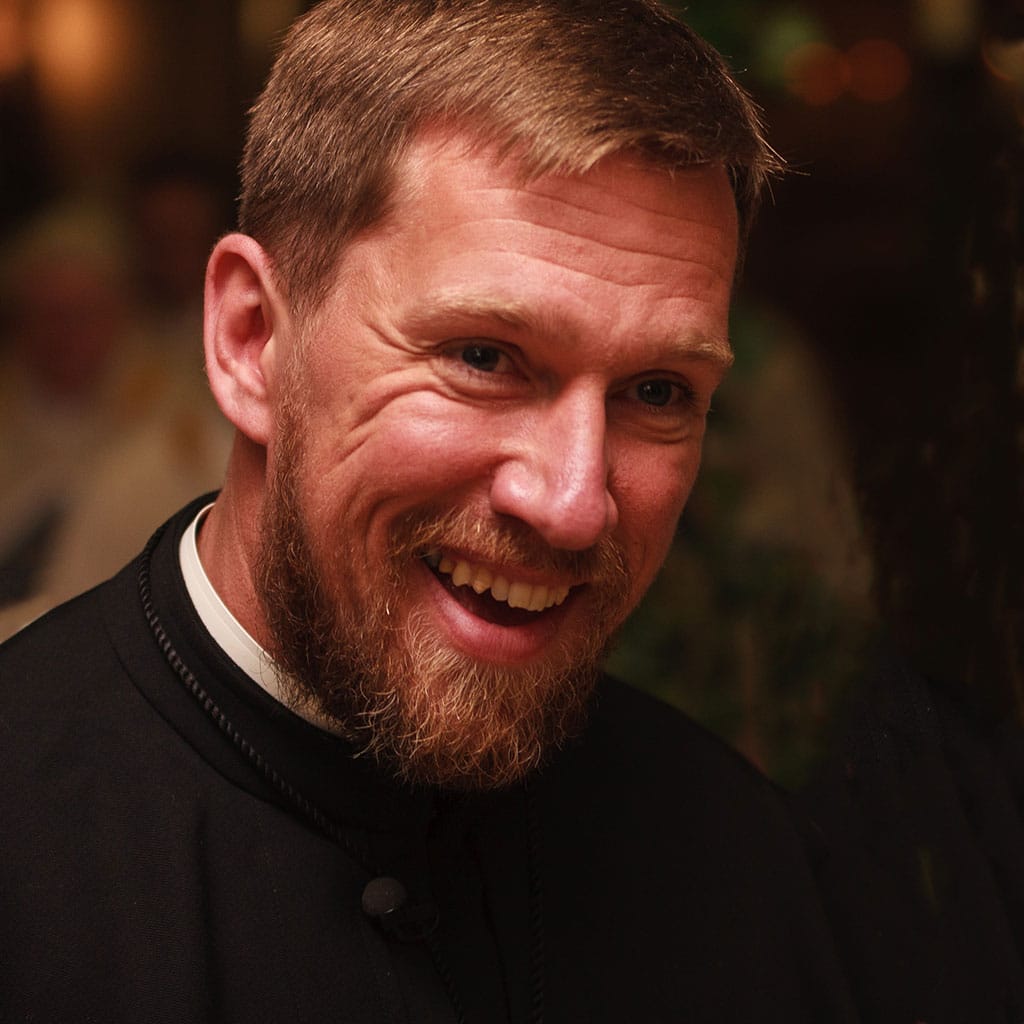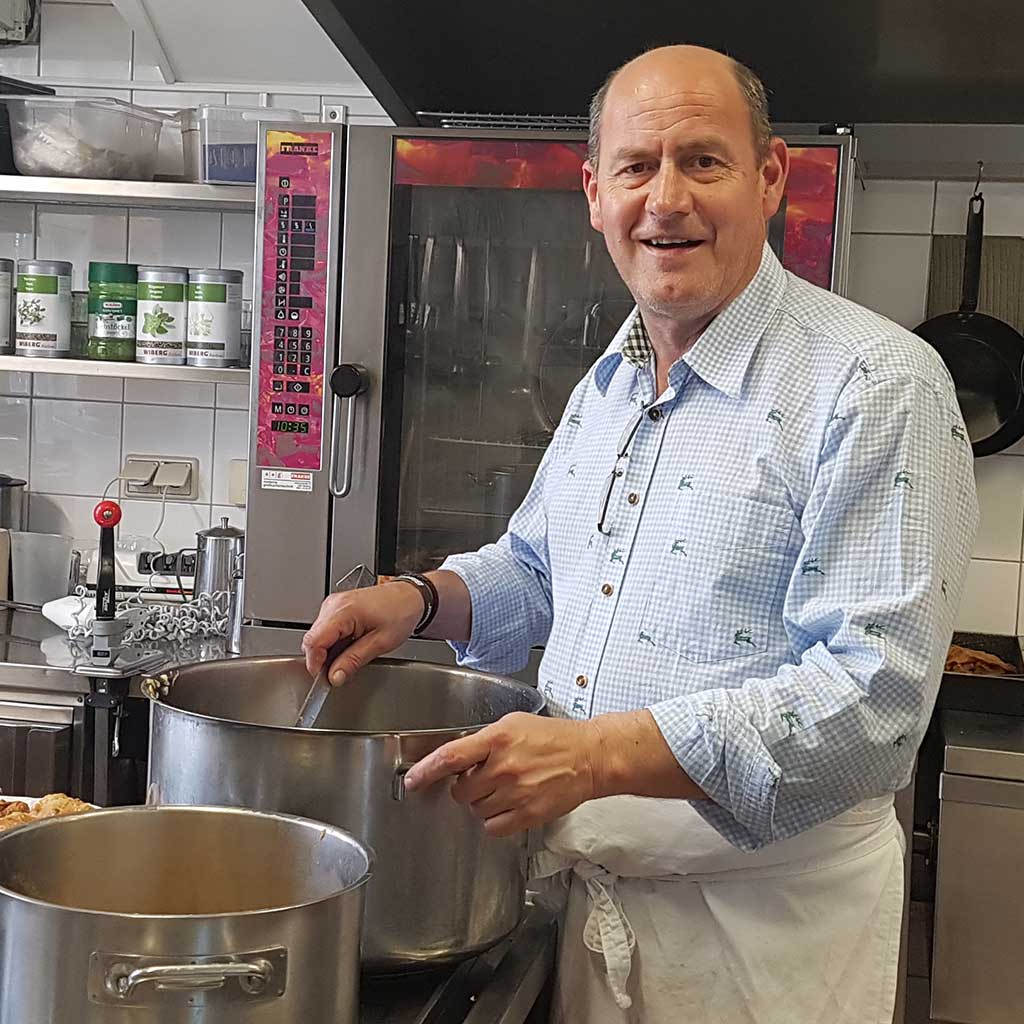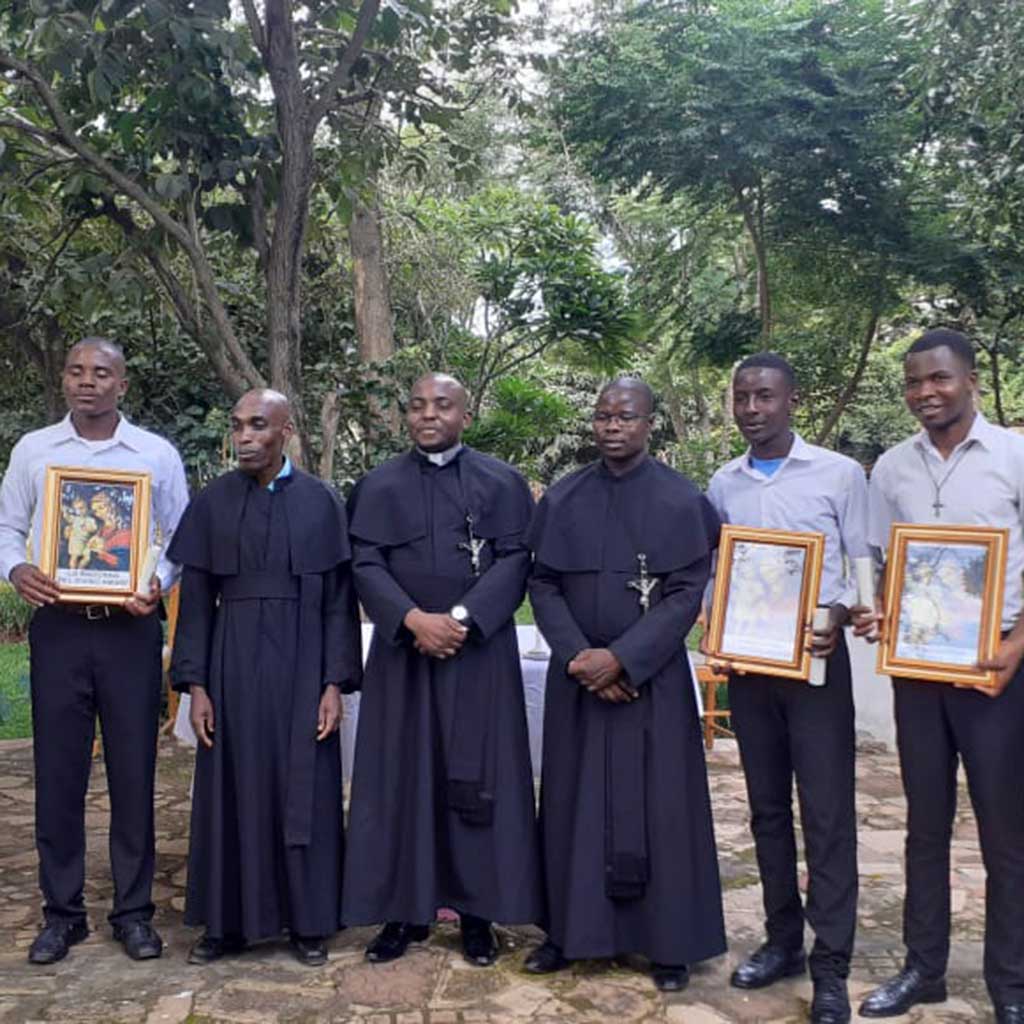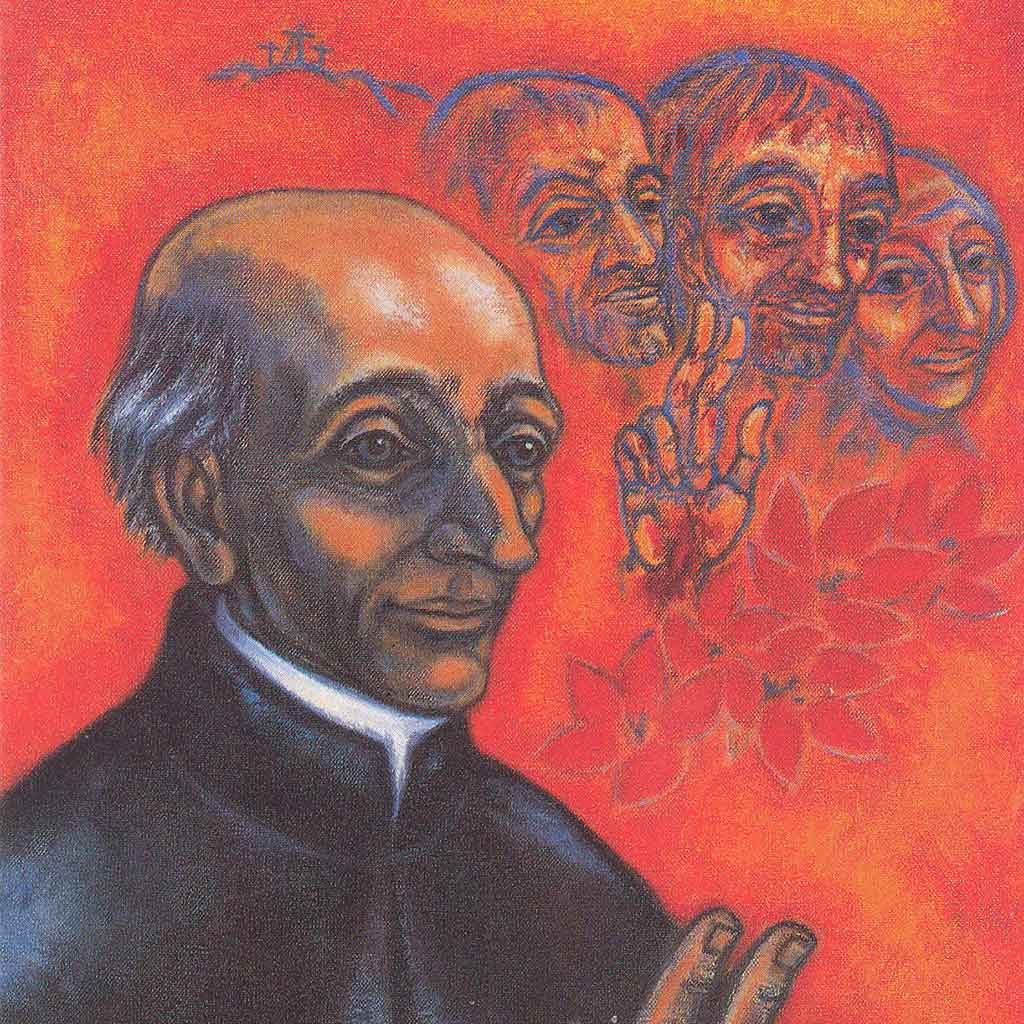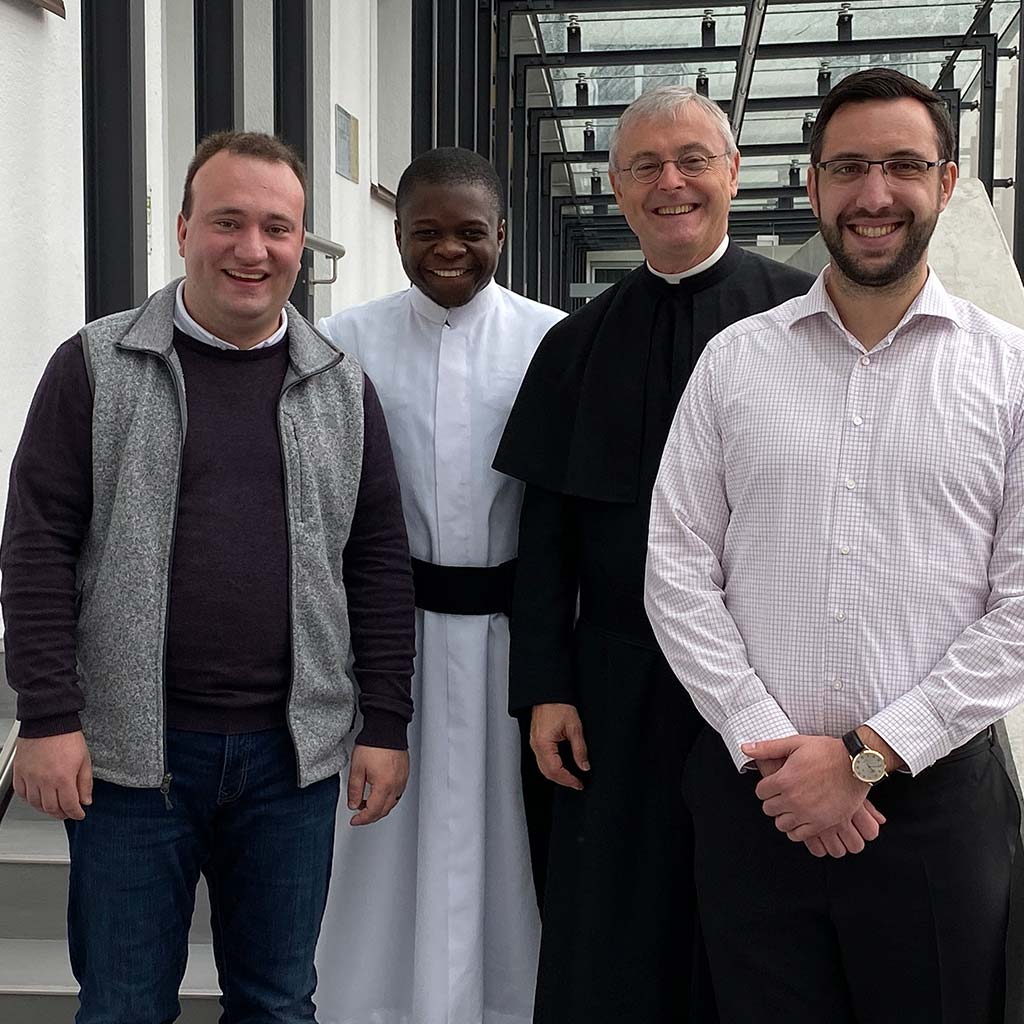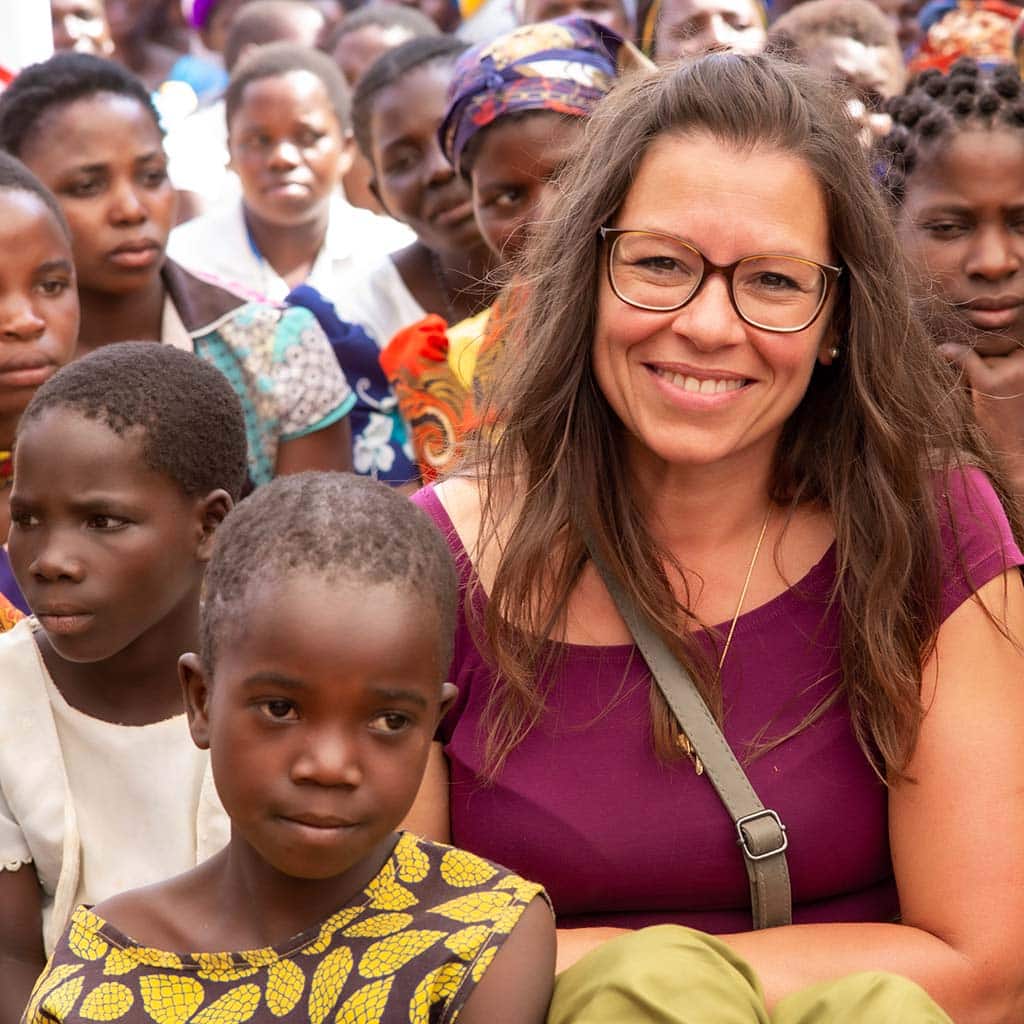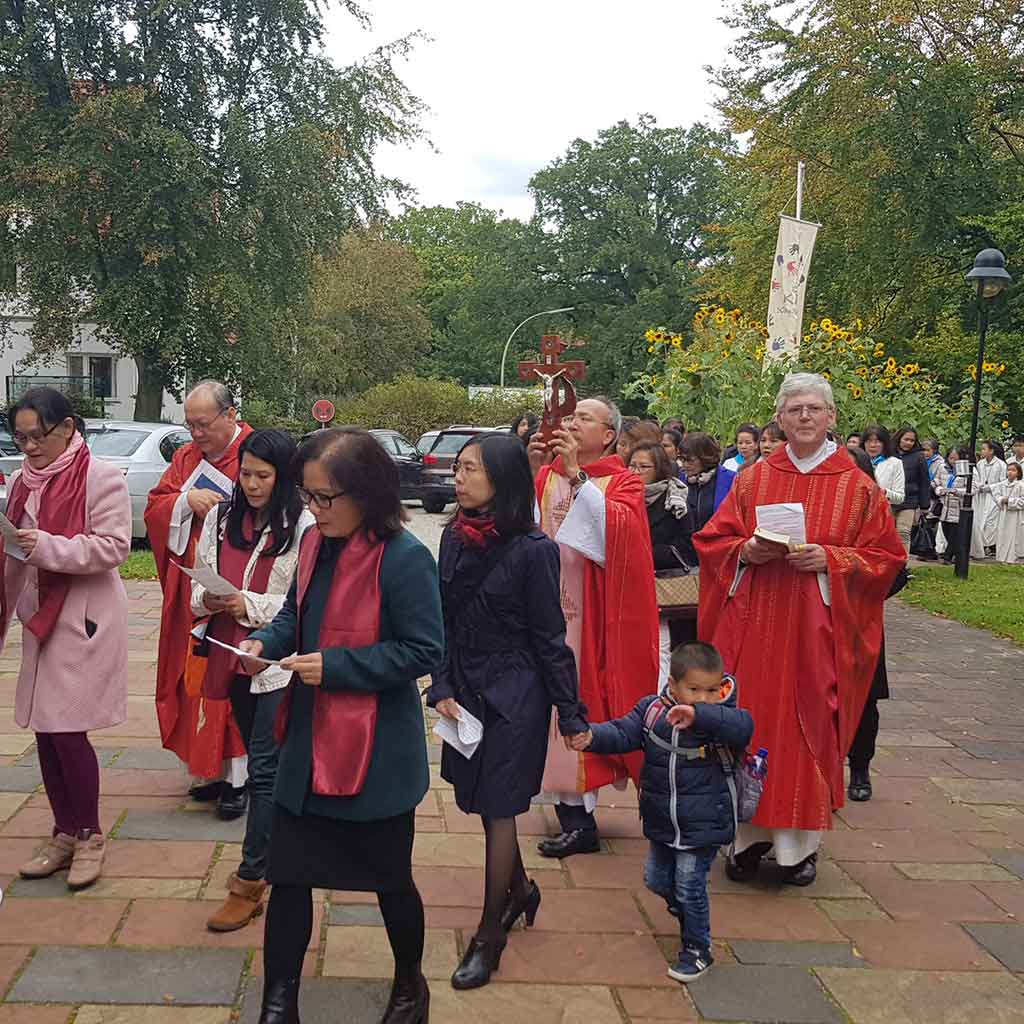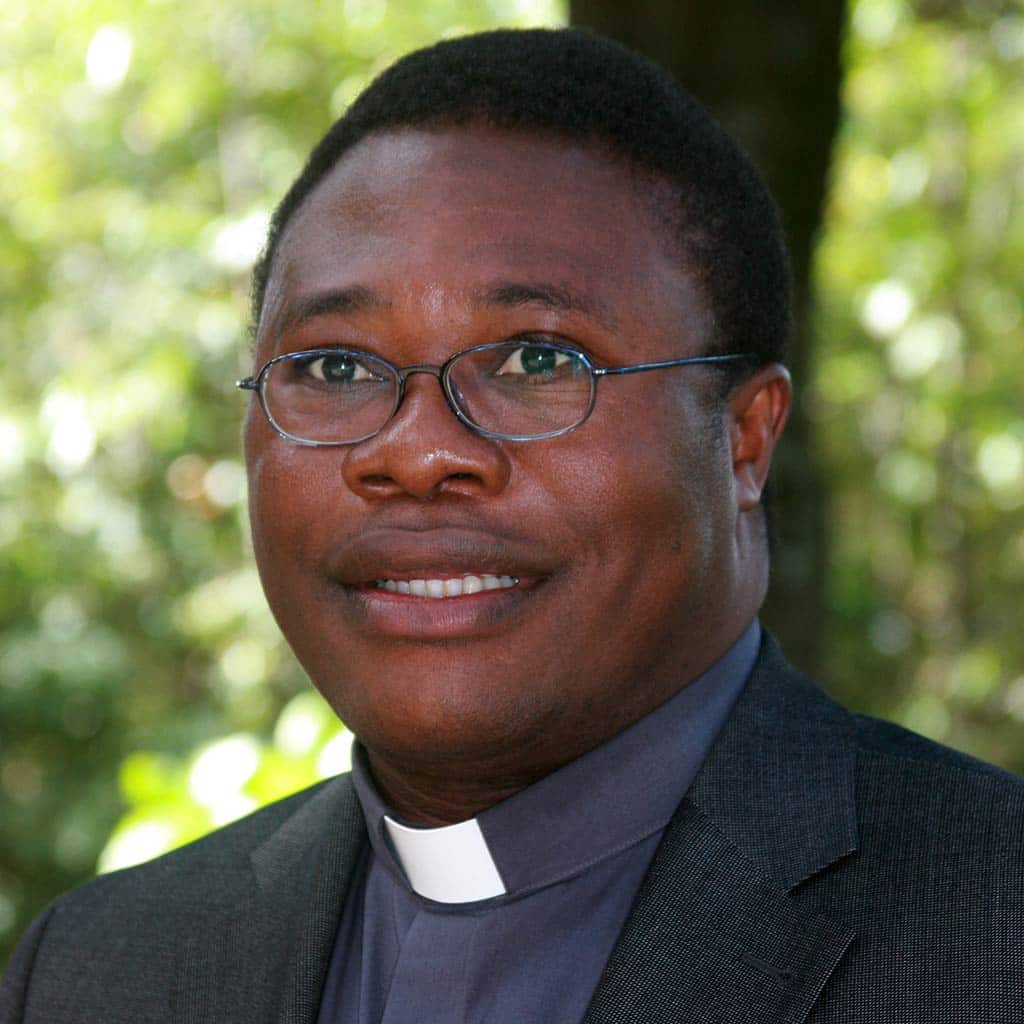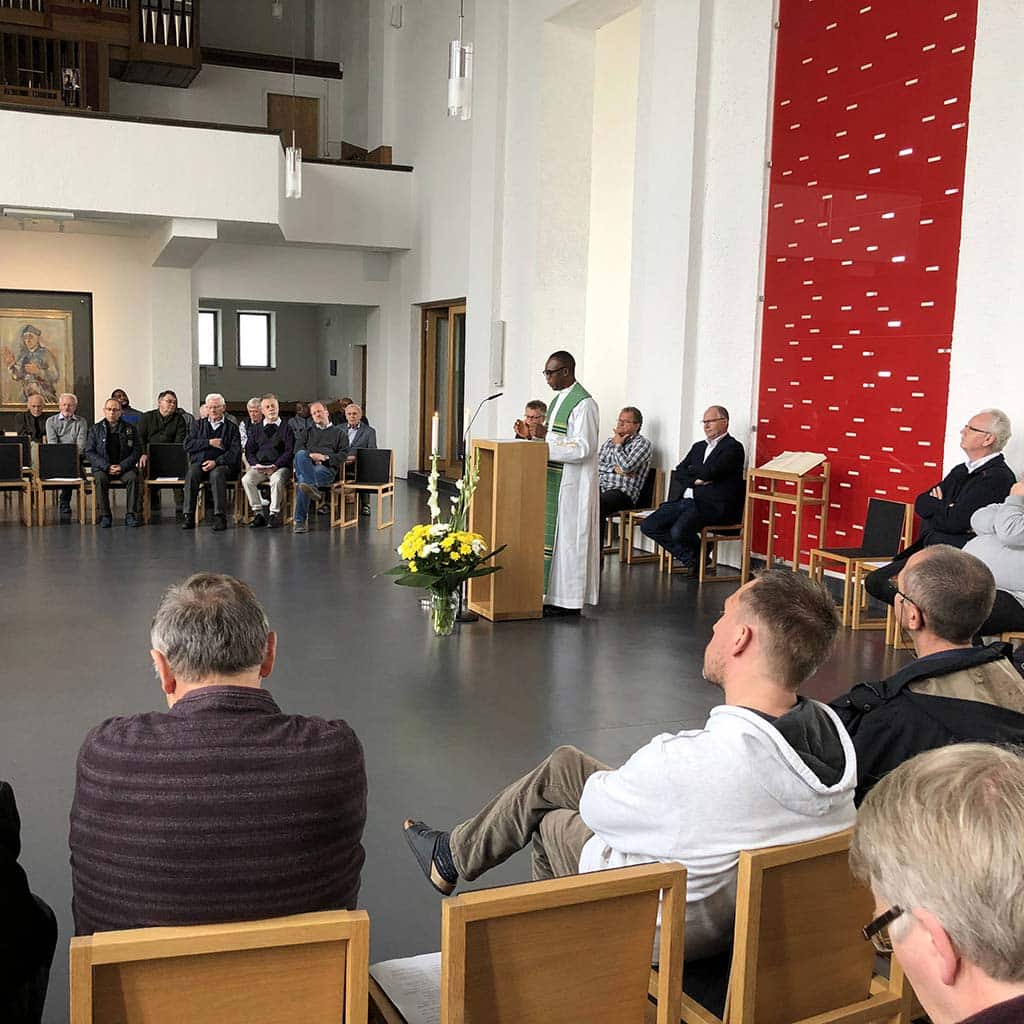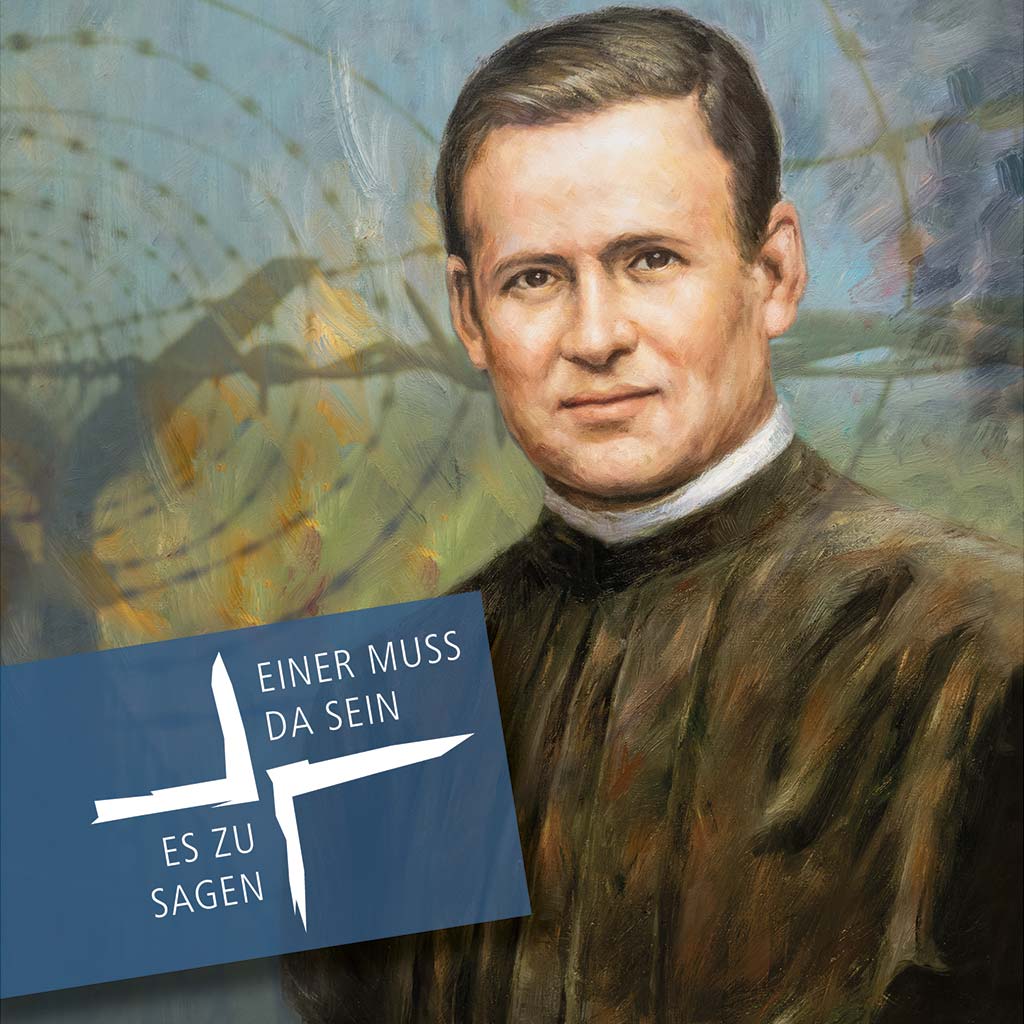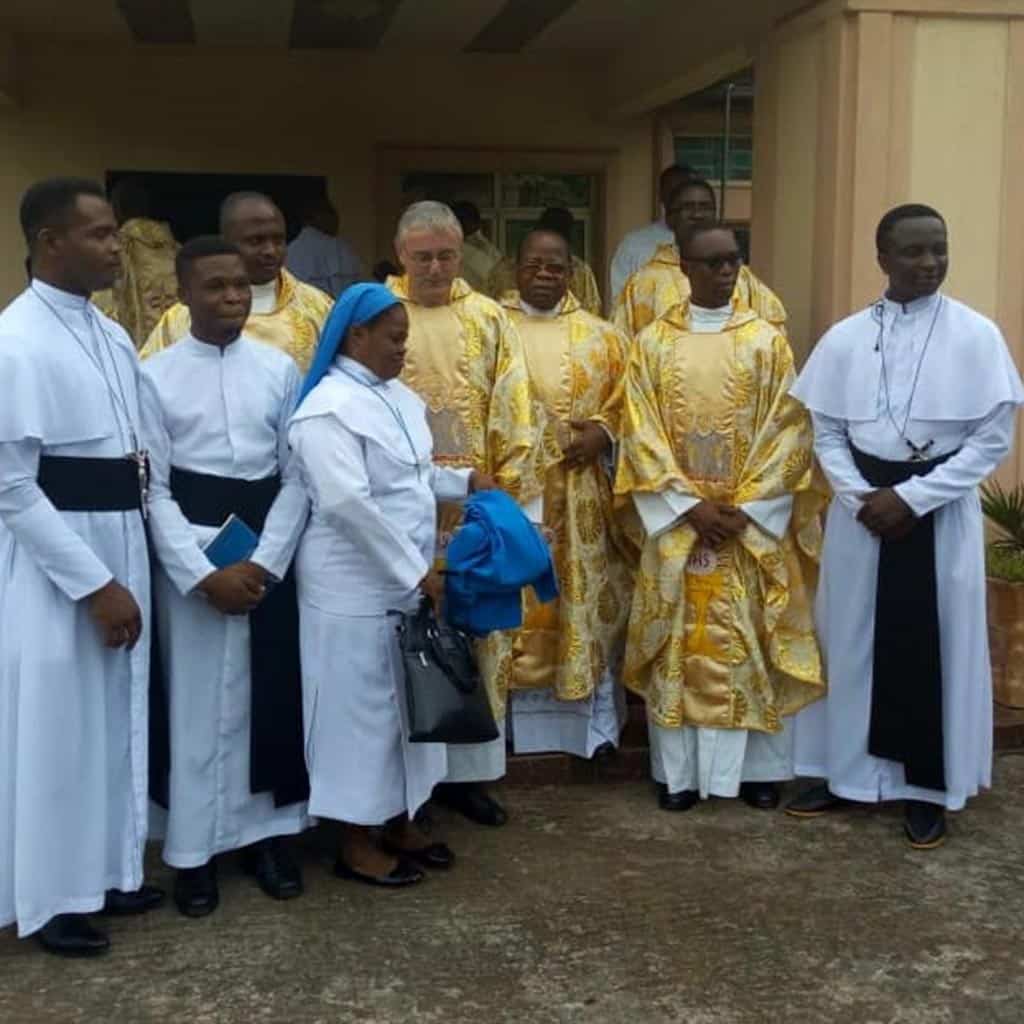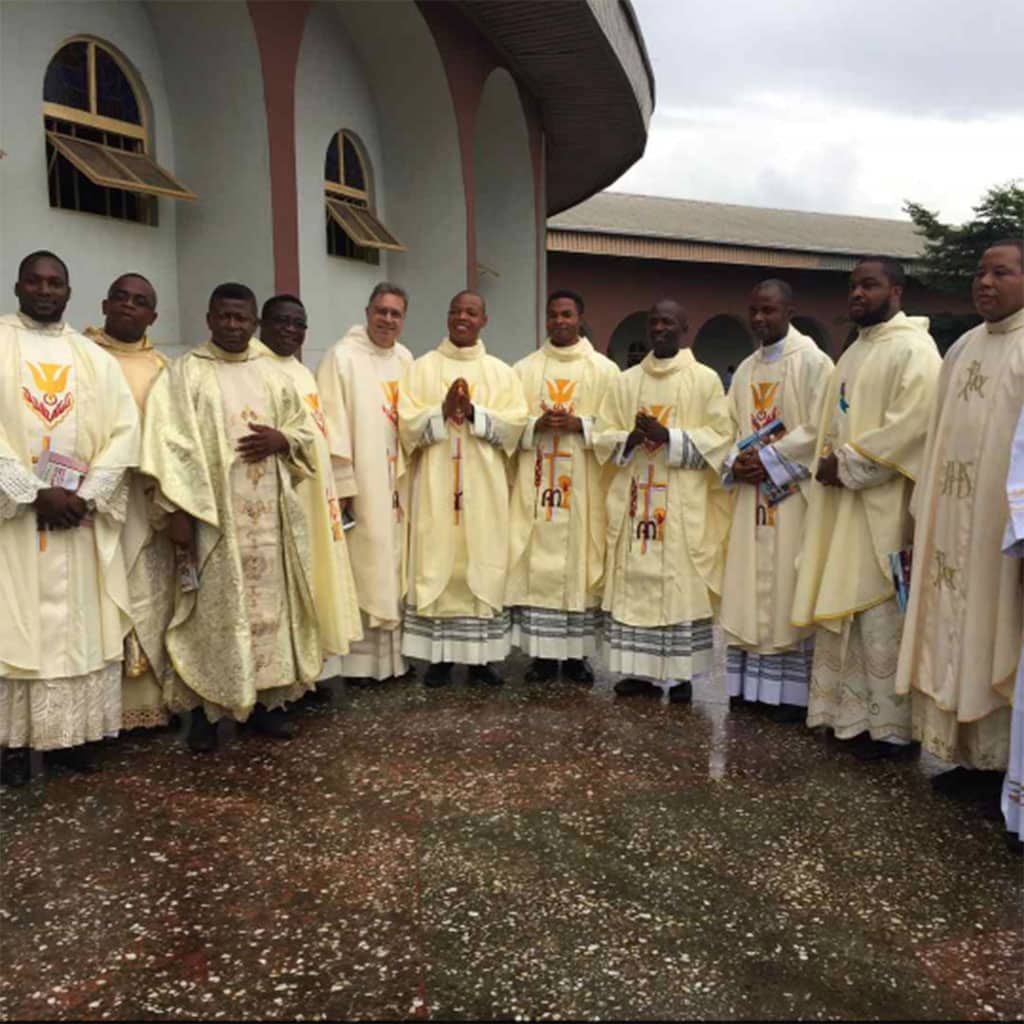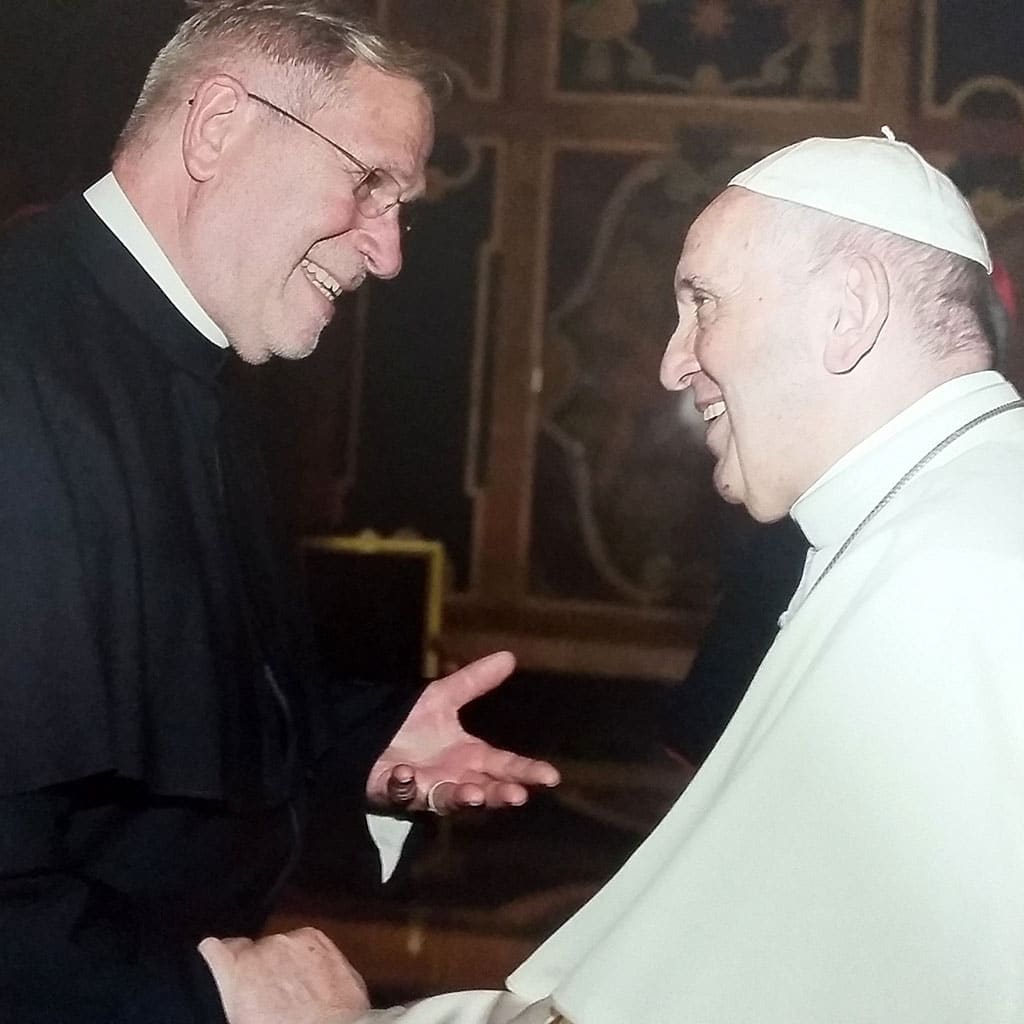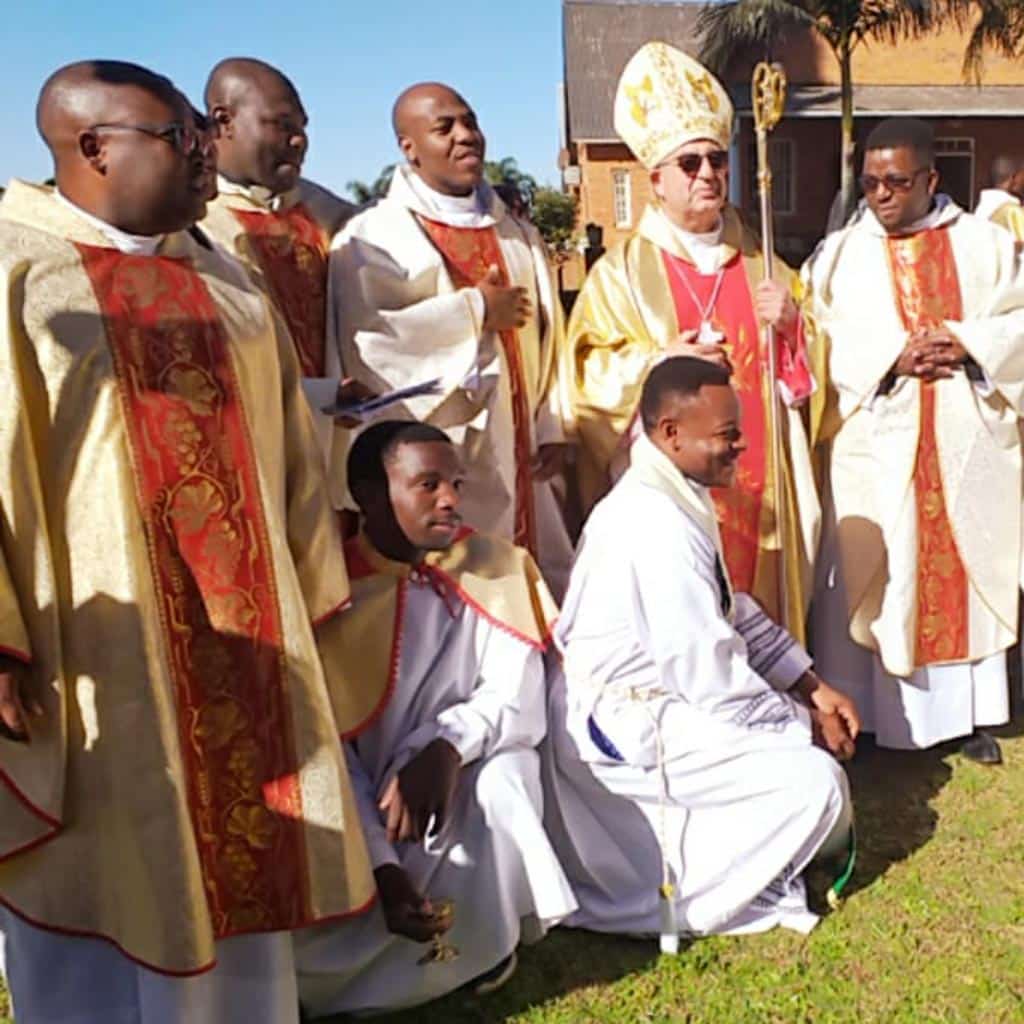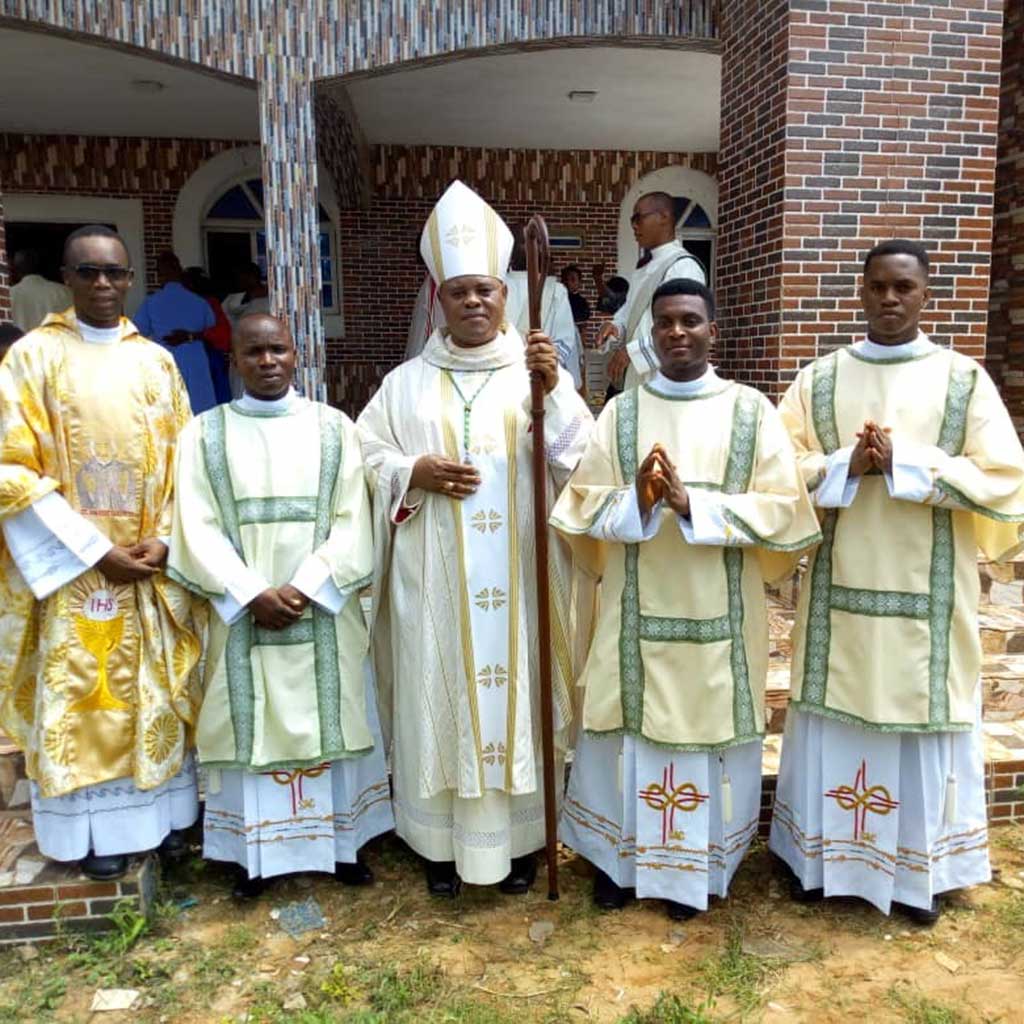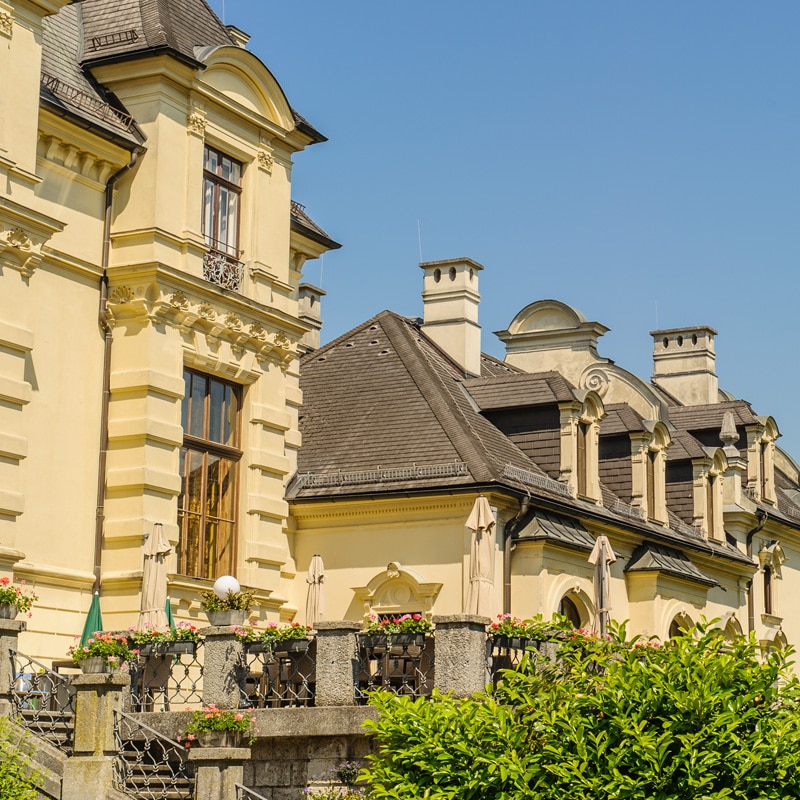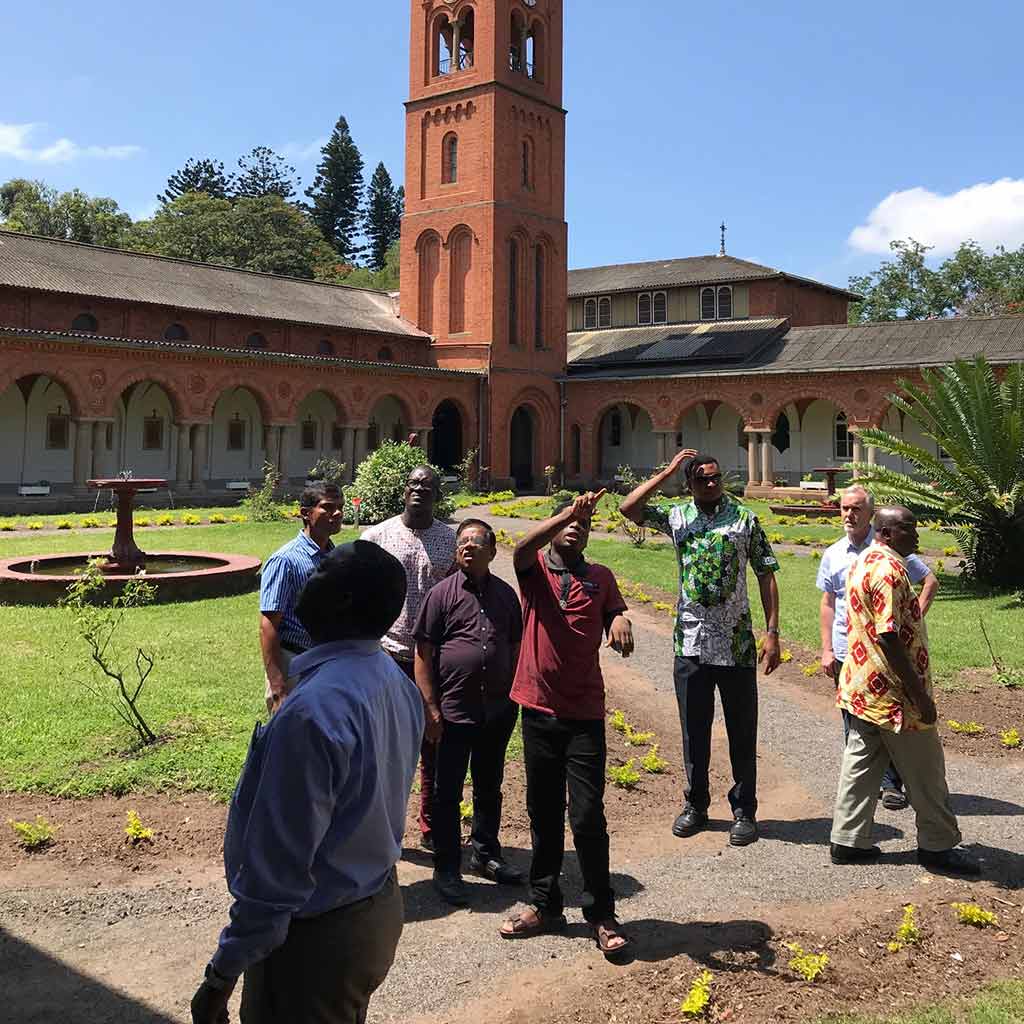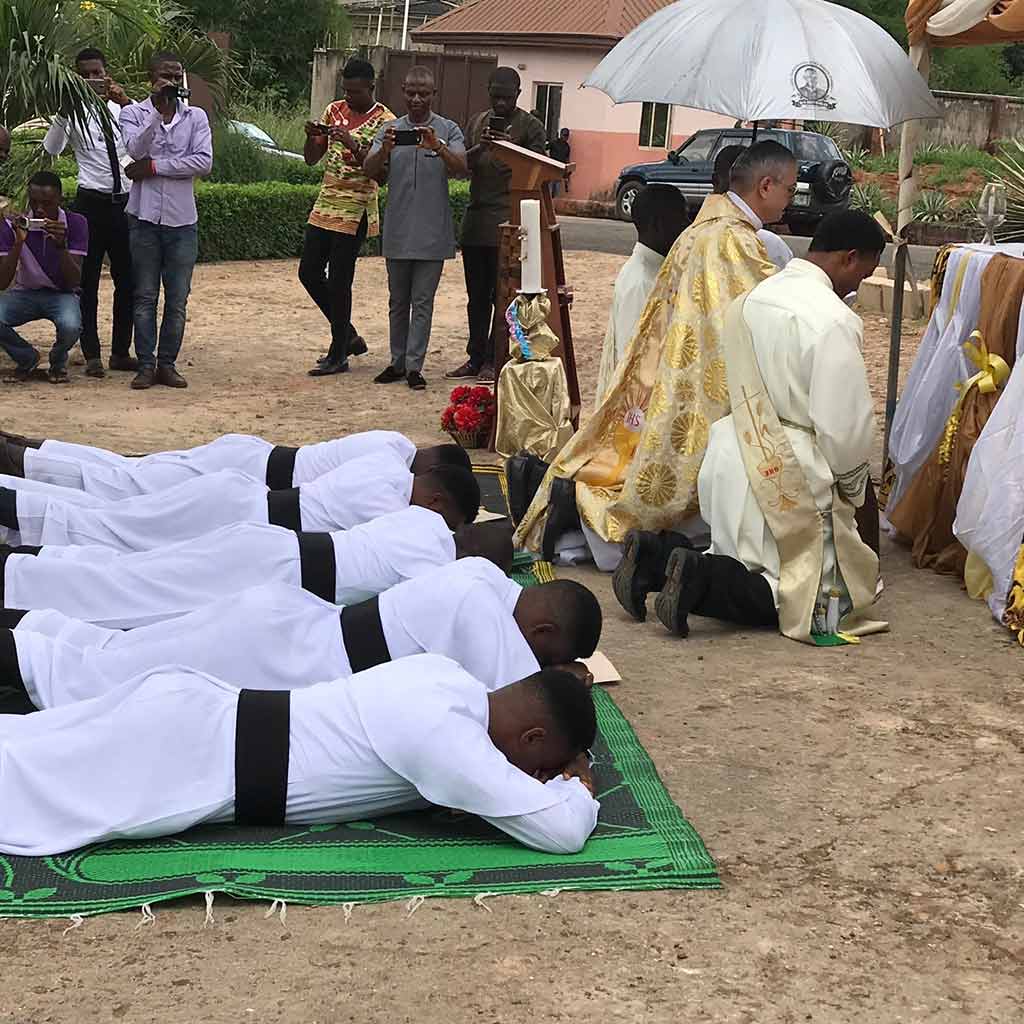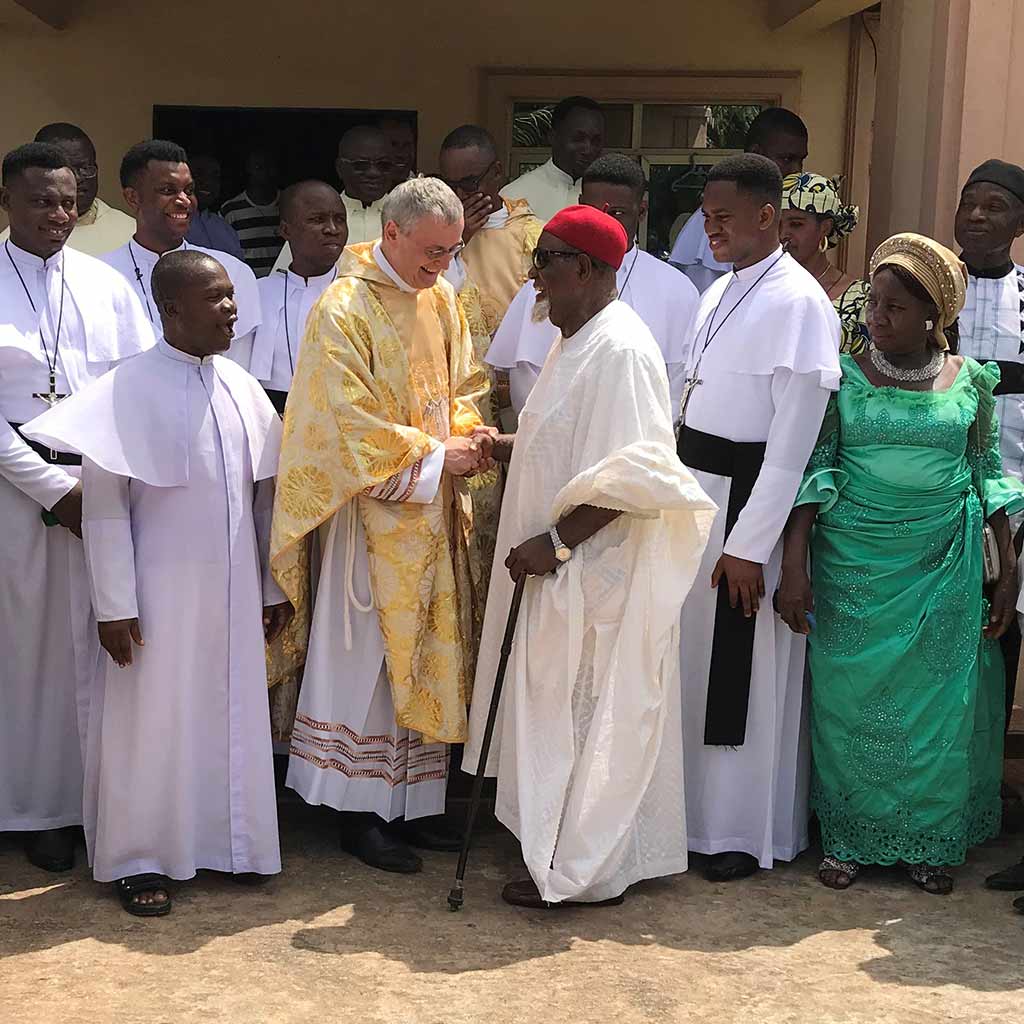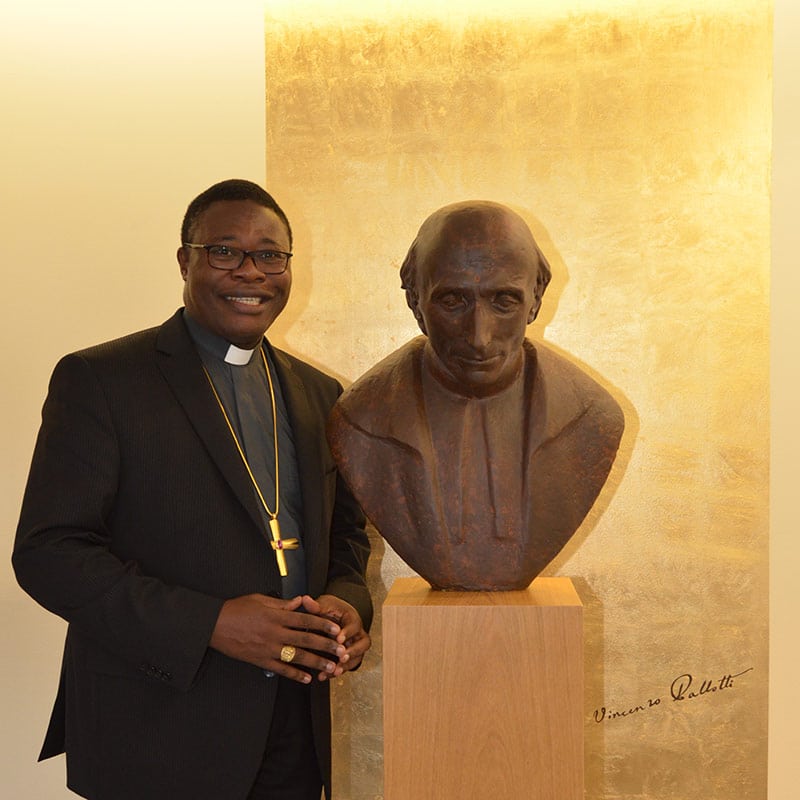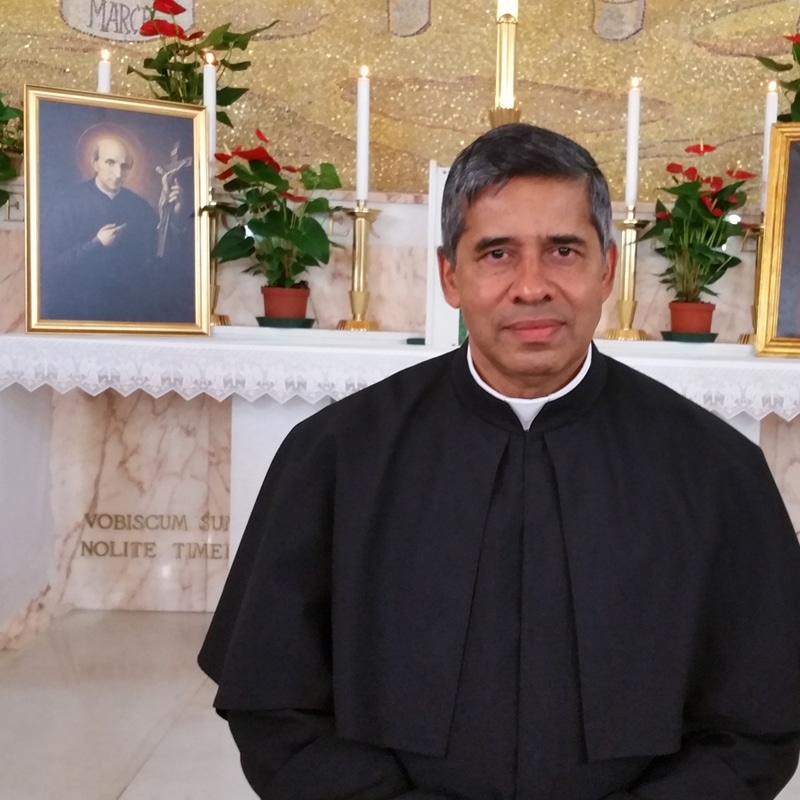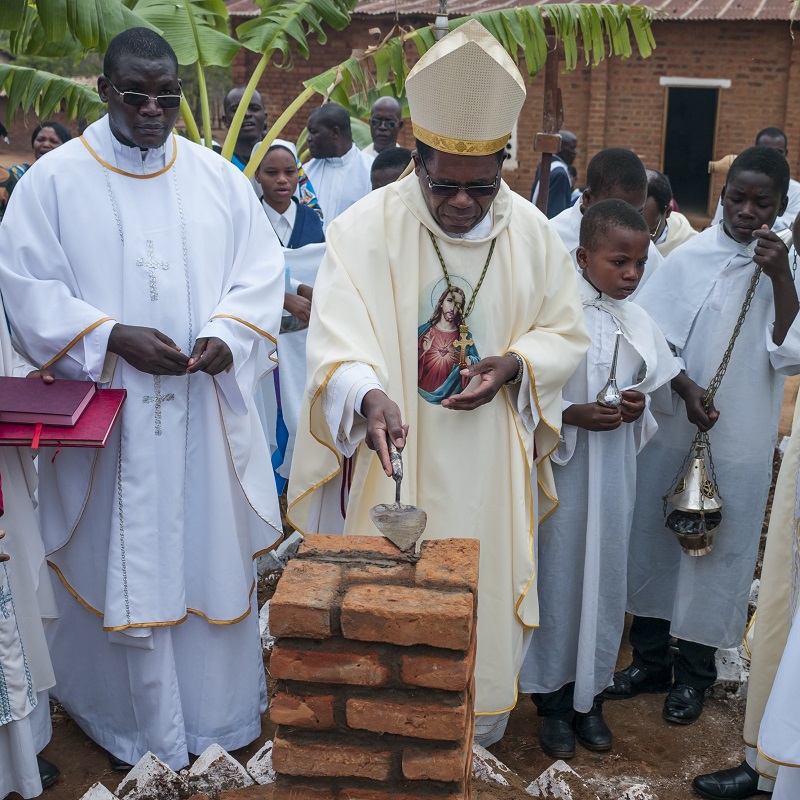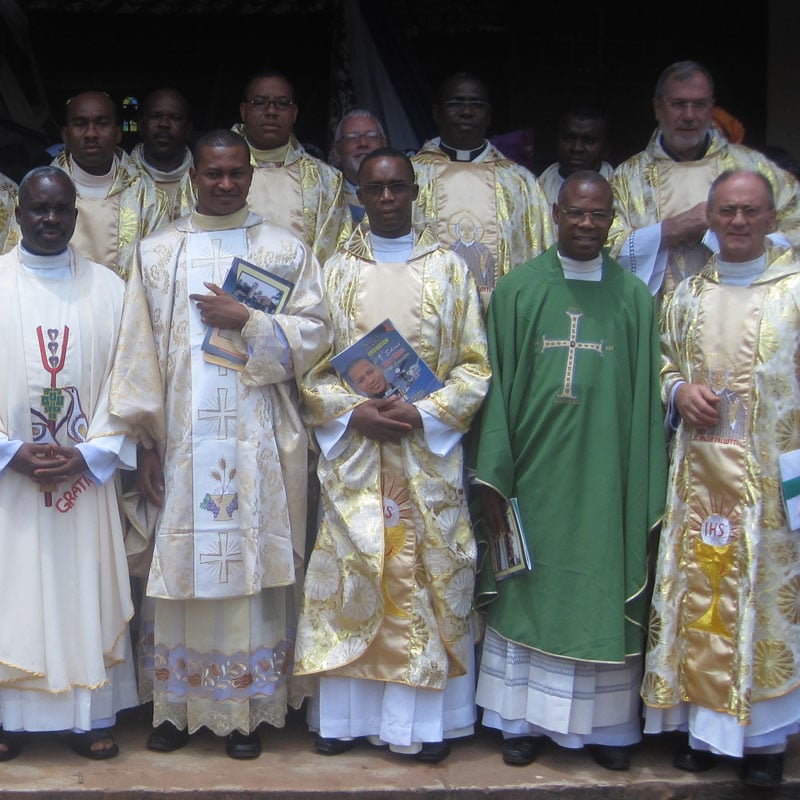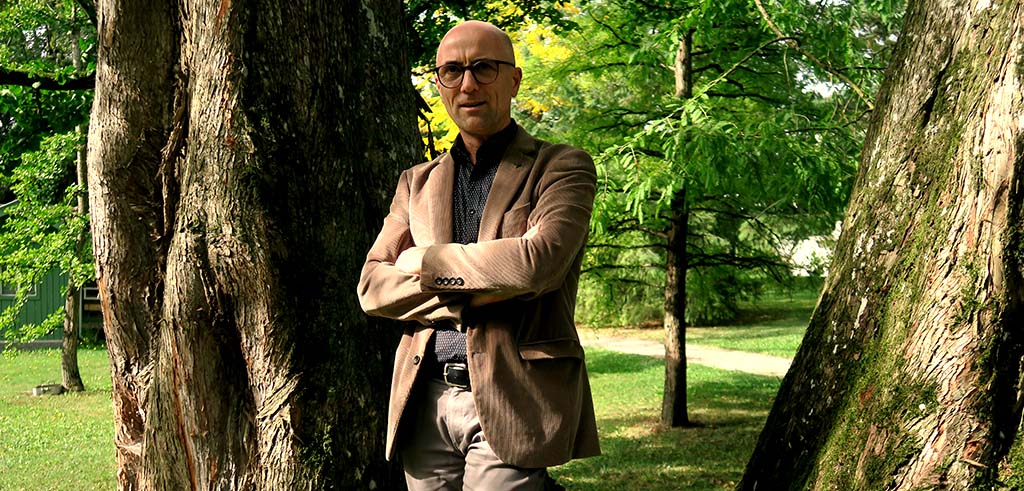
Making projects flourish
Father Reinhold Maise promotes life as a gardener and missionary secretary
Father Reinhold Maise has just watered an orchid in full bloom in his office at the Provincial Office in Friedberg. The Pallottine friar already had a knack for ornamental plants as a gardener on the flower island of Mainau in Lake Constance. For the past year and a half, he has been working as a missionary secretary, helping Pallottine projects to flourish, especially in Africa and India. Whether as a gardener or now as Missionary Secretary, in both cases his aim is to “promote life”.
As Mission Secretary, Father Maise travels a lot – in the first year of his new role, he spent half the year travelling. He has visited India, Cameroon, Nigeria, Malawi, South Africa, Argentina, Brazil and Uruguay, Poland and Ukraine. His main focus is on his brothers. But when the opportunity arises, he is also fascinated by the plant world and its diversity. In Cameroon, Maise saw how a banana plantation financed by a Spanish parish in the middle of the forest was bearing fruit. Getting there took him over hill and dale on a motorbike. In northern India, he was delighted to see orchids in their natural habitat.
They are his speciality as a horticulturist specialising in the cultivation of ornamental plants. He completed his training on the island of Mainau. He worked on the flower island for a total of eleven years. The Pallottine’s duties included watering, fertilising and repotting orchids and helping to prepare the elaborate orchid shows. Creativity was required to display some 3000 blooming beauties. Many people were amazed to see a priest working as a gardener three days a week in addition to his pastoral duties. Even the television was interested.
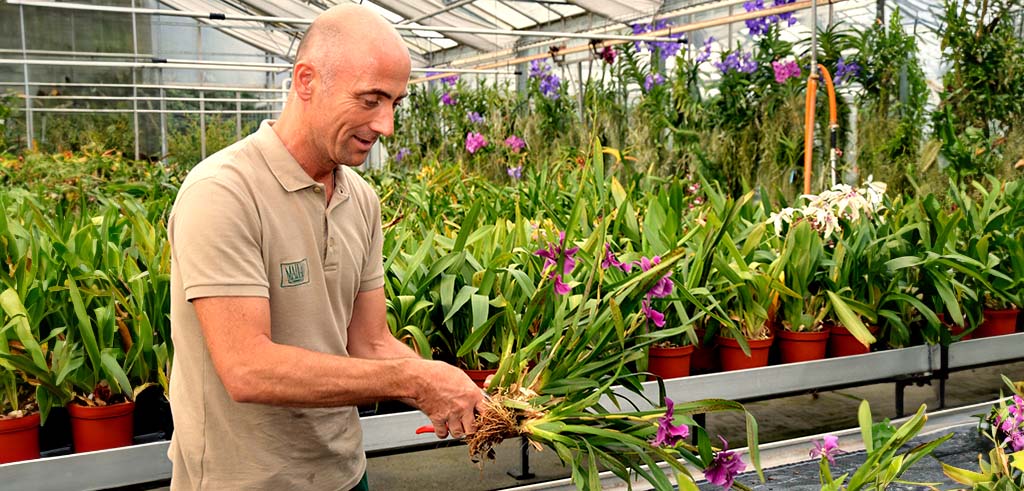
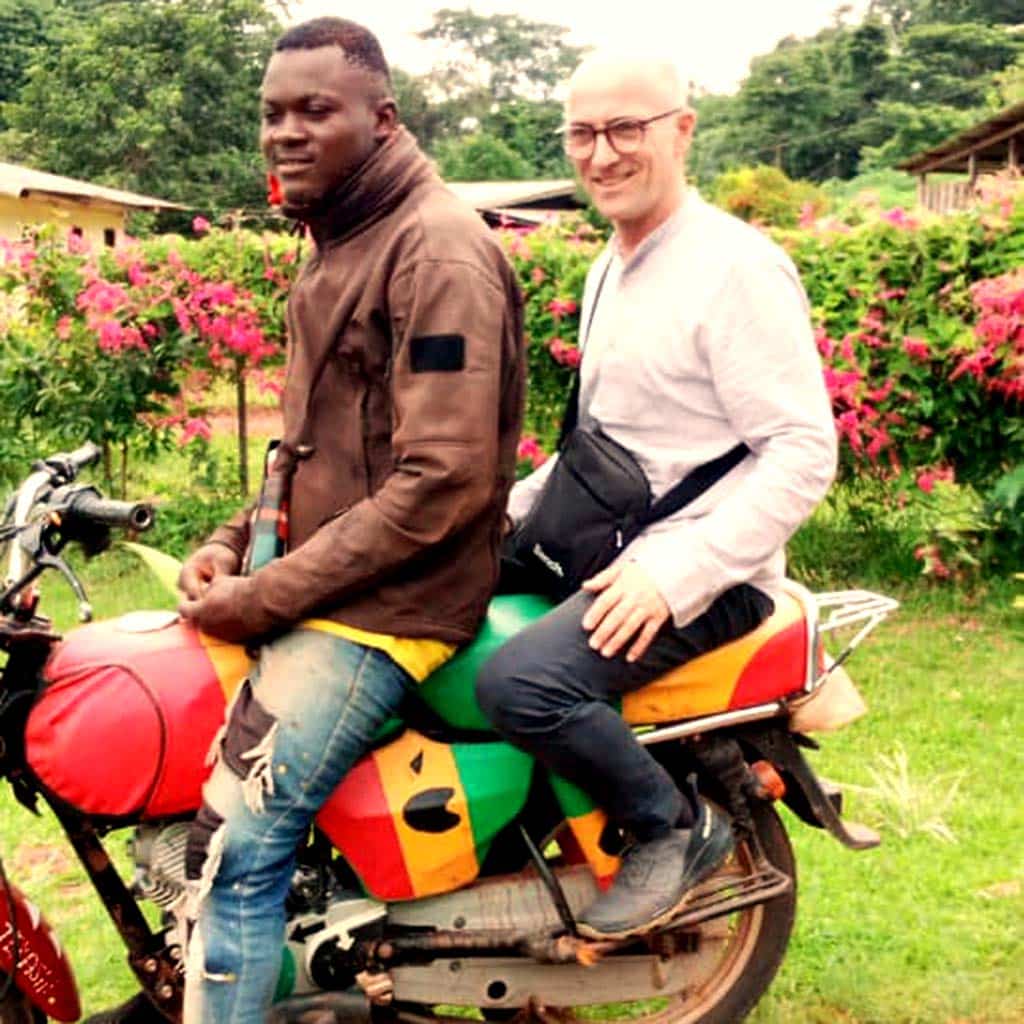
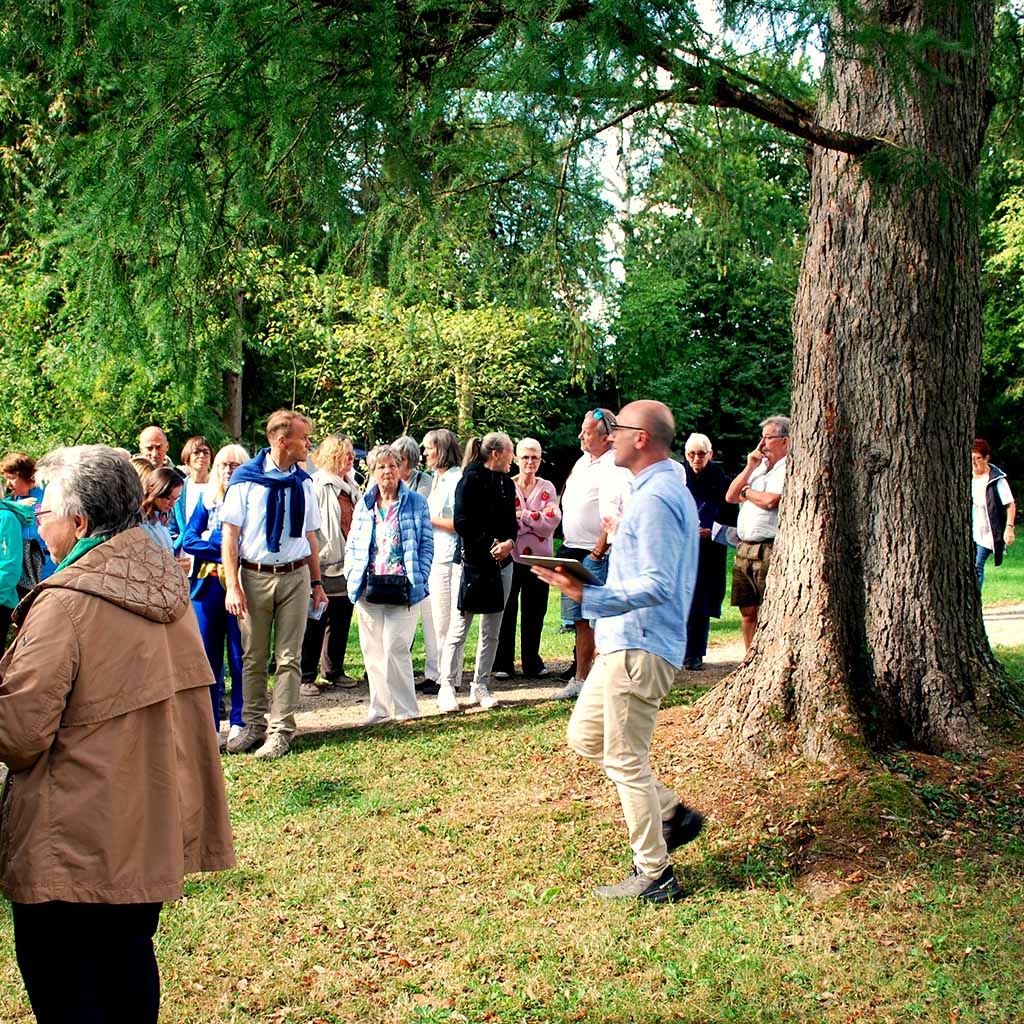
Learning from the plant world
For Father Maise, spirituality and botany are not mutually exclusive. On the contrary. “I feel enriched and positively inspired by botany,” he says. He believes that man can learn to live from the plant world. The Pallottine explains this as follows: “The laws of life are the same for man and nature. It is part of the art of living to recognise the impulses of life and to give them space”. Maise shared this with many visitors to the Festival of Encounter in the autumn during spiritual-botanical tours of the Friedberg Pallottine Park. There are about 200 trees there. It is a colourful mix of many different types of trees, including exotic species and tree seniors up to 80 years old.
“It is part of the art of living to recognise the impulses of life and to give them space”
For Maise, the park is a treasure that the Pallottines are now rediscovering for themselves, following maintenance work such as the removal of dead wood. He tells exciting stories about the special plants there. He knows a whole avenue of giant sequoias from the island of Mainau. But he is also impressed by the single double-stemmed specimen in Friedberg. It was thought to have been extinct since prehistoric times and was only rediscovered in China in 1941. In other words, a fossil has been resurrected. The Ginkgo is also present in the park. This tree of life is said to have survived the atomic bombing of Hiroshima. Father Maise sees the ginkgo tree as a sign of God’s creative power. The Pallottine combines his tree stories with poetic and spiritual texts. He sees the beauty of nature and, as a creative man, he wants to create beauty. At the same time, he has a trained gardener’s eye for the extensive grounds. And Father Maise sometimes lends a hand himself. For example, when he had to get rid of the box moth caterpillars with organic sprays.
Flowers need stimulation, and without light there is no life
In his office, Father Maise can quickly tell by looking at the houseplants whether they are doing well with new shoots or badly with withered leaf tips. Plants, like people, need to be treated with care. The way you treat others tells you a lot about yourself. For Maise, this is an important law of life. But sometimes new impulses are needed. After all, constant, well-tempered mediocrity is not always good for you. The cacti Maise inherited from his mother spent the winter in a cool, dark place so that they would flower later. Flower bulbs also need a cold stimulus. What may seem negative at first glance can be exploited, says Maise.
“Constant, well-tempered mediocrity is not always good for you”
Botany can also teach us something about the cycle of life. In the Pallottine Park in Friedberg, as elsewhere, the leaves have fallen in the autumn, only to grow again in the spring. And Father Maise will eventually divide his orchids. Old parts of the plant will then allow new shoots to grow and later die. “The future goes forward, not backward,” says the missionary secretary. And plants always have a clear purpose. “They are looking for the way to the light. Because without light, there is no life,” says Father Maise. For him, what Jesus said about himself is life-affirming: “I am the light of the world”.
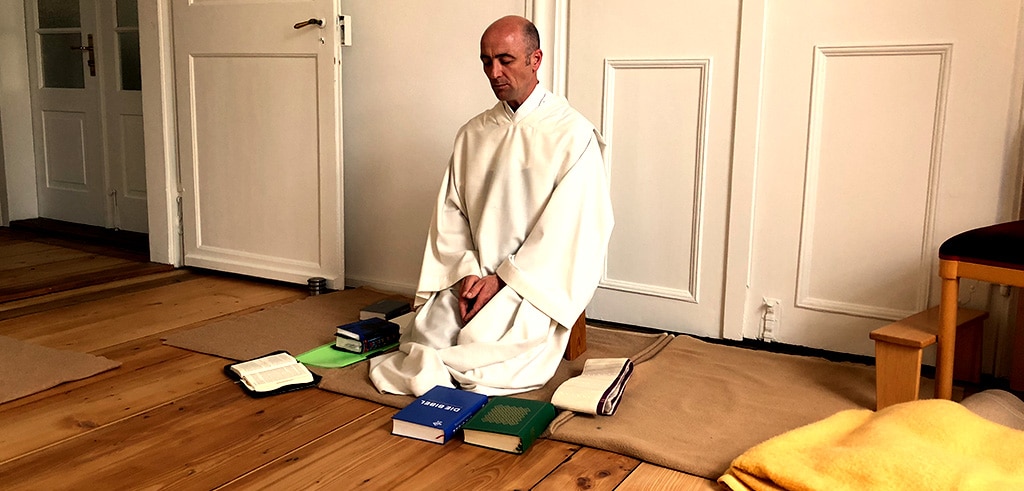
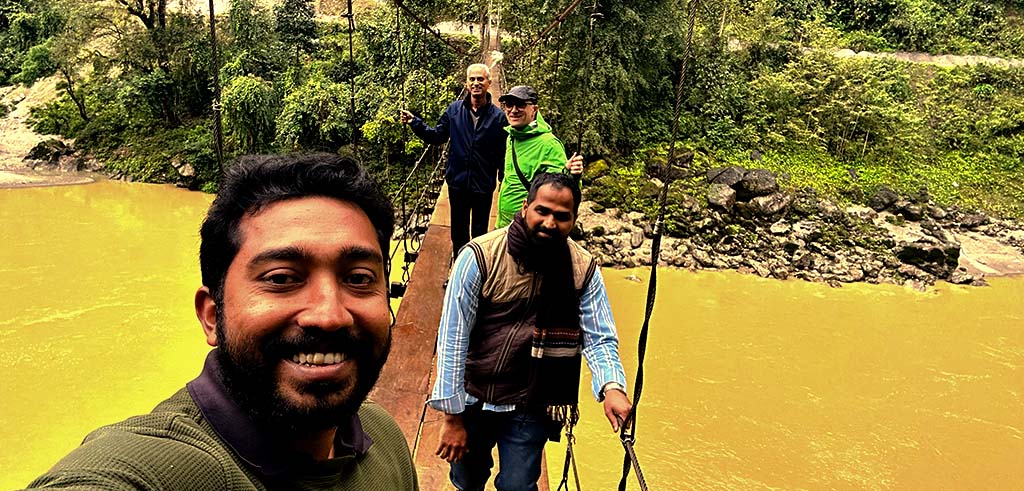
Contemplation and action
For the 52-year-old priest, change is part of life. So his transition from part-time gardener to missionary secretary is nothing unusual. On the flower island of Mainau, combined with his work in the House of Silence and Prayer in Constance, things were rather quiet and meditative. As a missionary secretary, however, Father Maise is often on the move. “I need both – contemplation and action,” says the Pallottine priest. He begins his day with a meditation early in the morning. For him, there is a clear connection between his past and present roles: “It’s about promoting life and passing it on. His ageing Pallottine community supports the young confreres in Africa and India with experience and money. The fact that development is possible in this way makes “perfect sense” to Maise.
“Every life has a vocation”
For Maise, his new role as Mission Secretary is “a logical step” in his life’s journey. “When I live what God has created in me, when it blossoms, it can also become a blessing for others,” says the missionary secretary. He believes that this is true not only for pastoral workers, but for everyone. Every life has a vocation. Each one of us should look at what we are good at and what is useful to others. Whether you are a priest, a gardener, a doctor or a lorry driver.
Question:
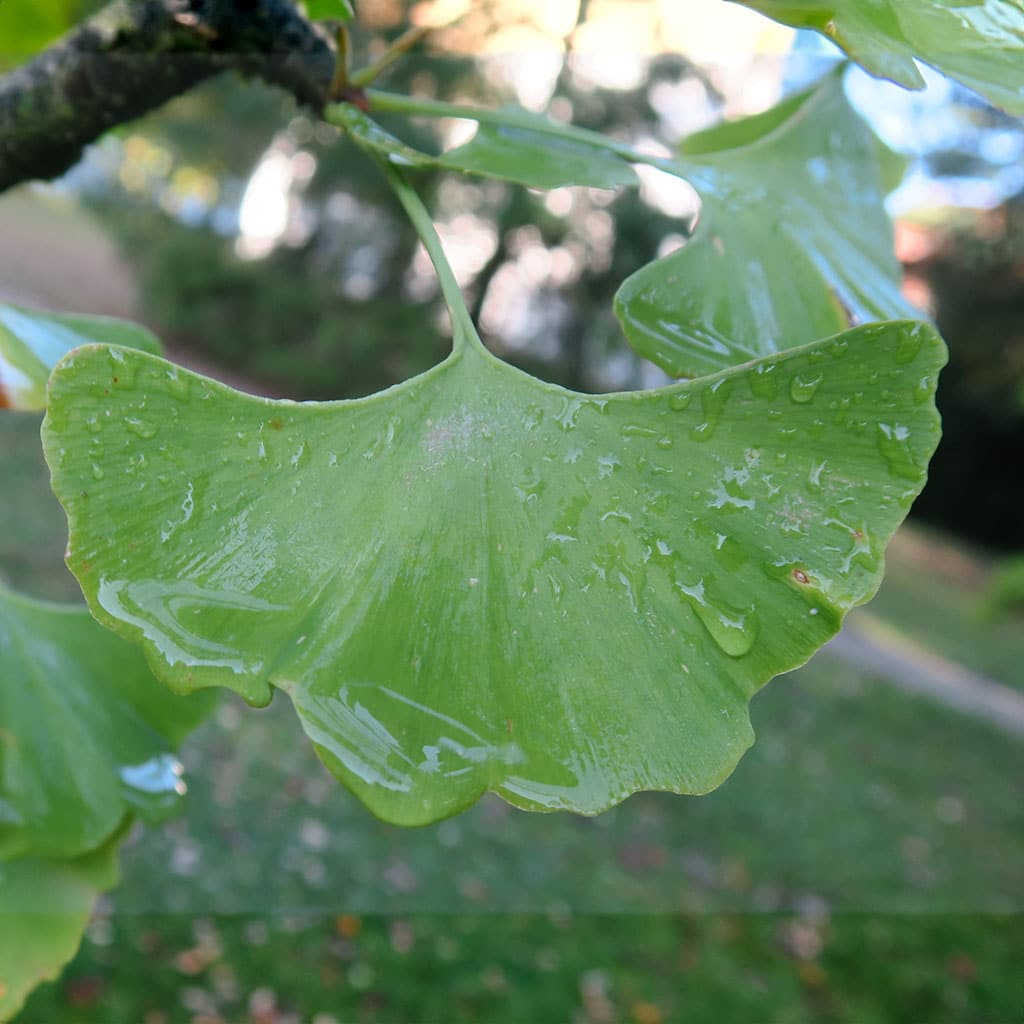
What does a Ginkgo look like?
There is a group of Ginkos growing in the Pallottine Park in Friedberg. Goethe described the gingko leaf in a poem as a symbol of love and friendship.
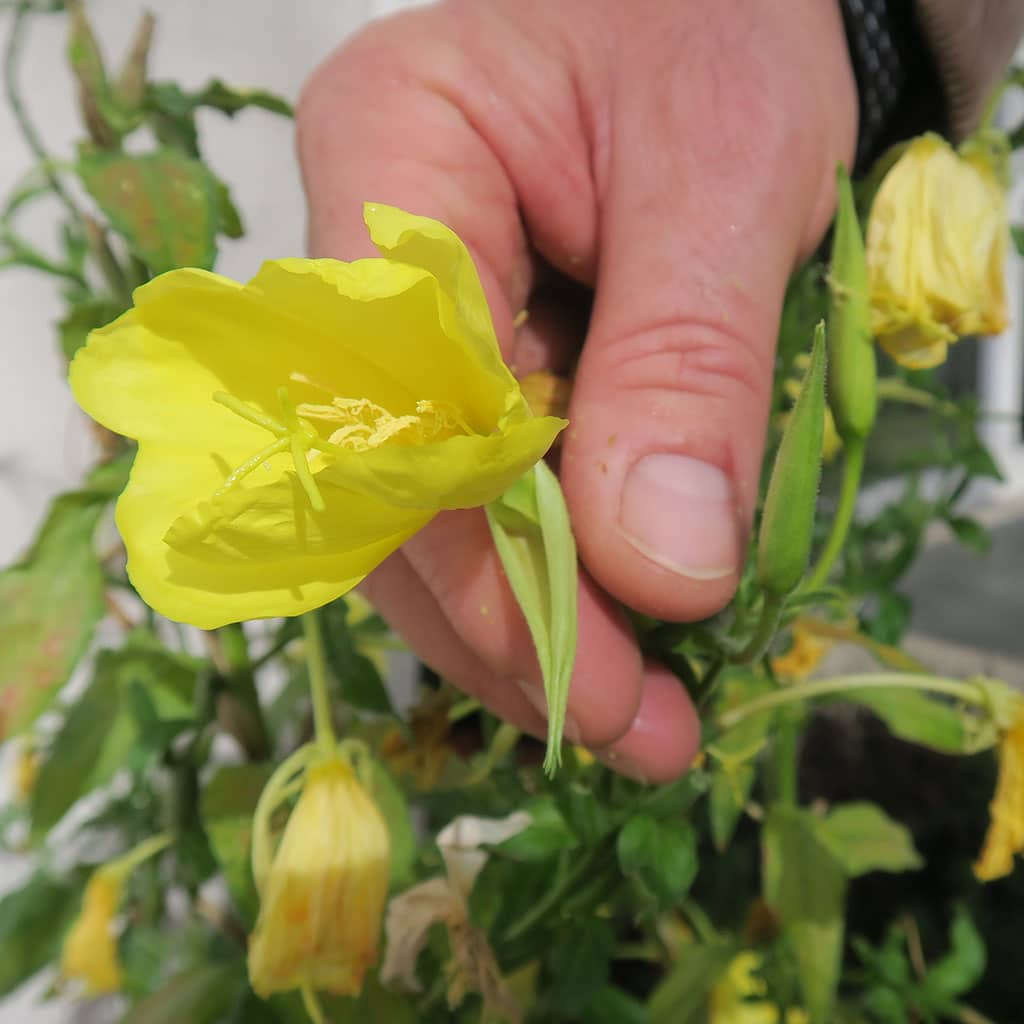
What does an evening primrose look like?
During his spiritual-botanical tours, Father Reinhold Maise showed us a short-lived beauty: the evening primrose blooms only from dusk until the next day.
Who is Father Reinhold Maise?
Father Reinhold Maise SAC (born 1971) comes from Ittendorf near the Pallottine branch at Hersberg Castle on Lake Constance. He has been involved with the Pallottine community since his baptism, first communion, confirmation and as an altar boy. He also completed his secondary education in Hersberg. After his civil service in the care of the elderly, he studied theology, first in Freiburg and then in Vallendar. Back at Lake Constance, Maise was ordained a priest in Hagnau in 2000. After his pastoral year in Augsburg-Bärenkeller, he worked as a school and youth chaplain in Bruchsal, was responsible for vocations in Friedberg and was spiritual director at the novitiate in Untermerzbach. From 2011 he trained as a gardener on the island of Mainau in Lake Constance. He then worked there part-time until 2022. At the same time, Maise continued to work as a pastor, and in 2017, together with his confrere Father Fritz Kretz, he opened the house of silence and prayer “Coenaculum” in the old town of Konstanz. Since August 2022, Father Maise has been Missionary Secretary of the International Pallottine Province, based in Friedberg, Bavaria.
Report: Andreas Schmidt
Pictures: Pallottine Fathers, Andreas Schmidt, Island Mainau/Tobias Mayer, Josef Eberhard, Alexander Schweda
Share this article…
Travel reports by our Mission Secretary, Fr Reinhold Maise:
Recommended
